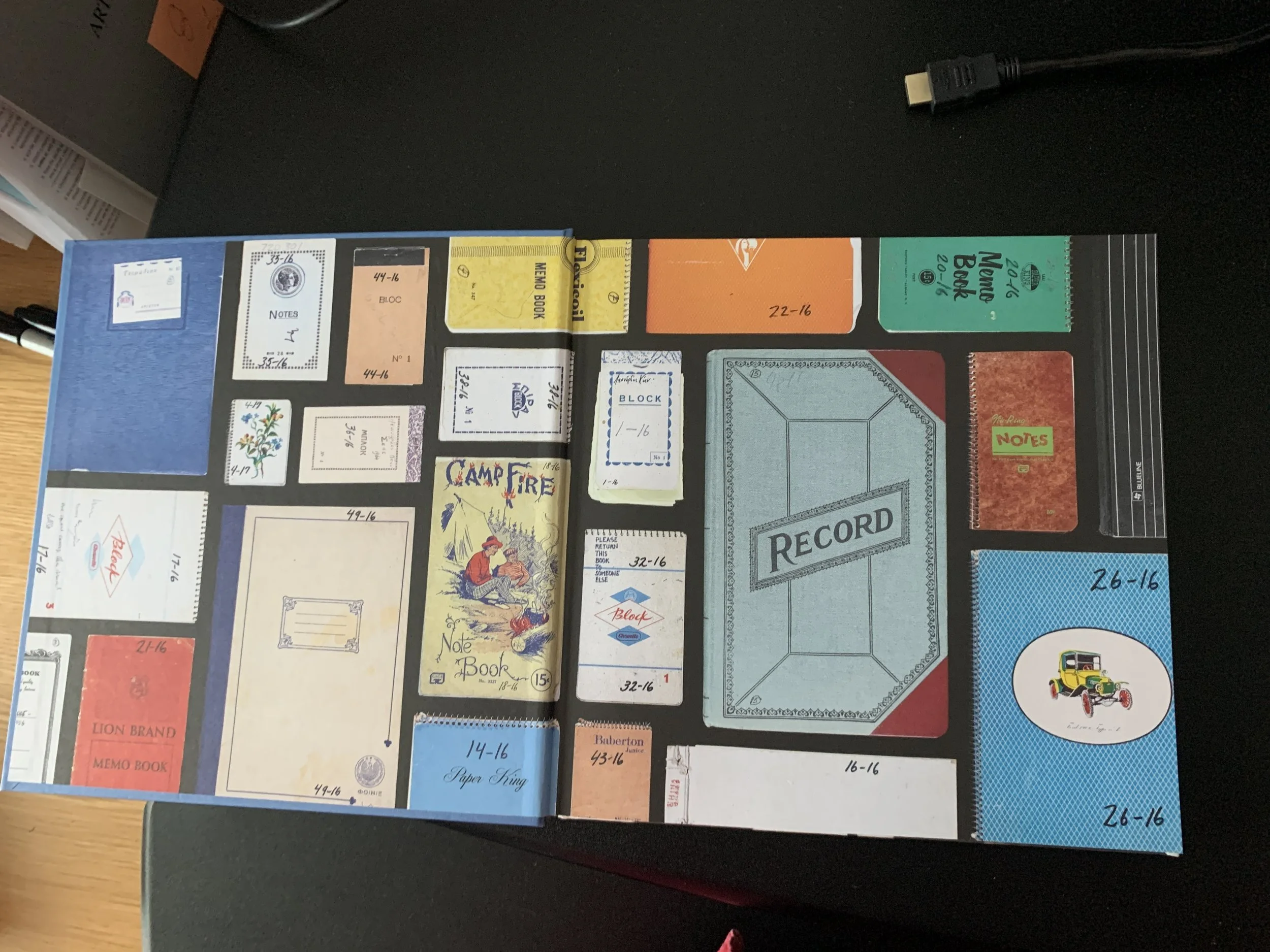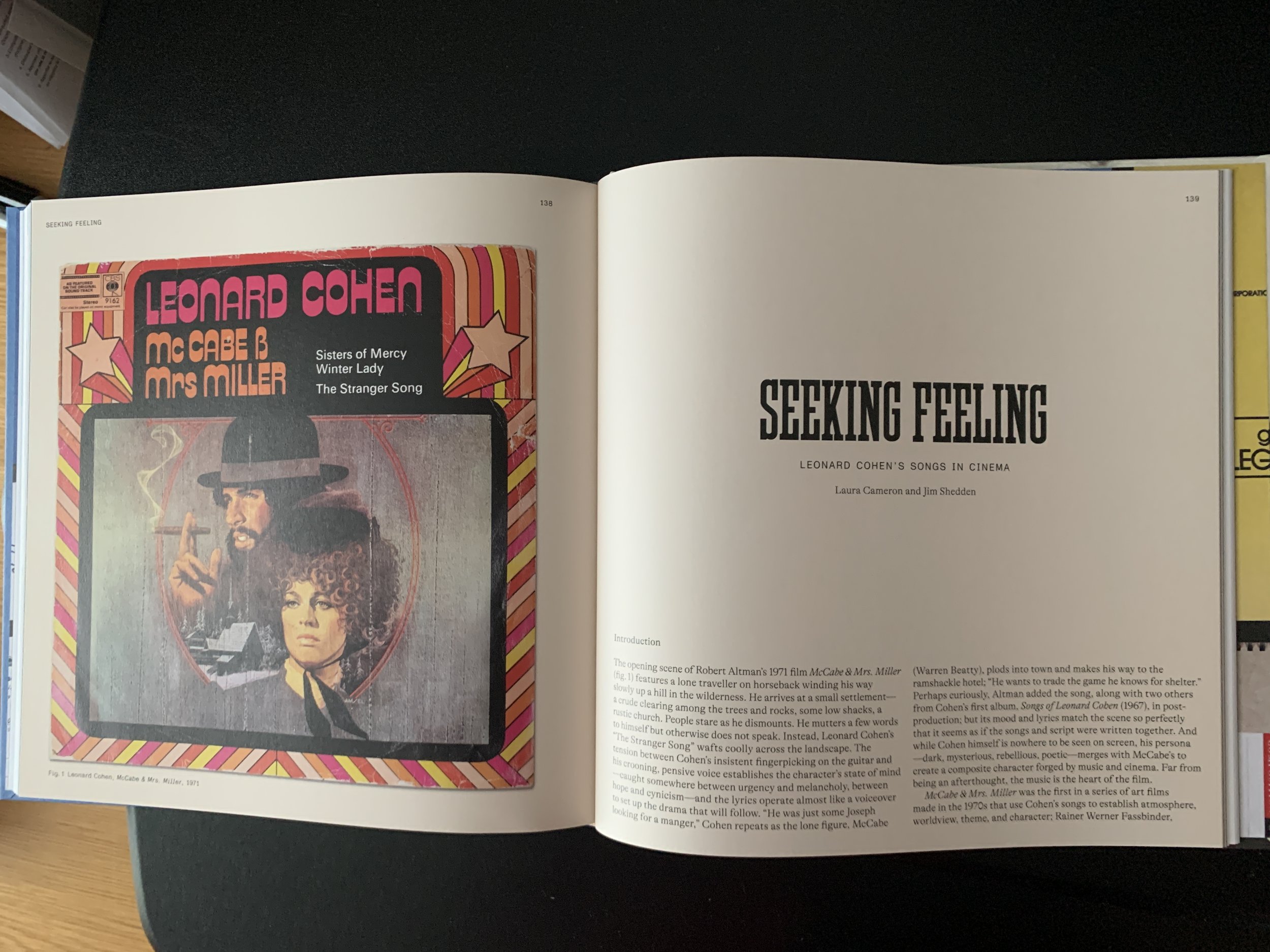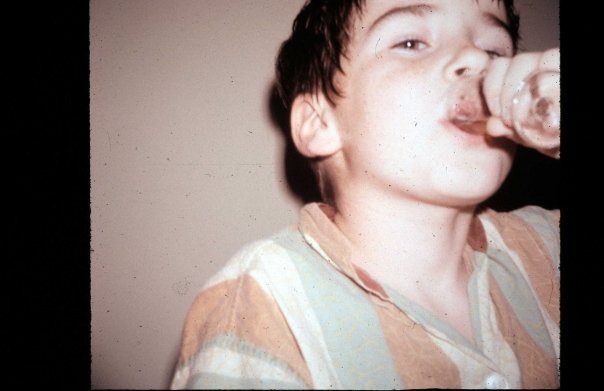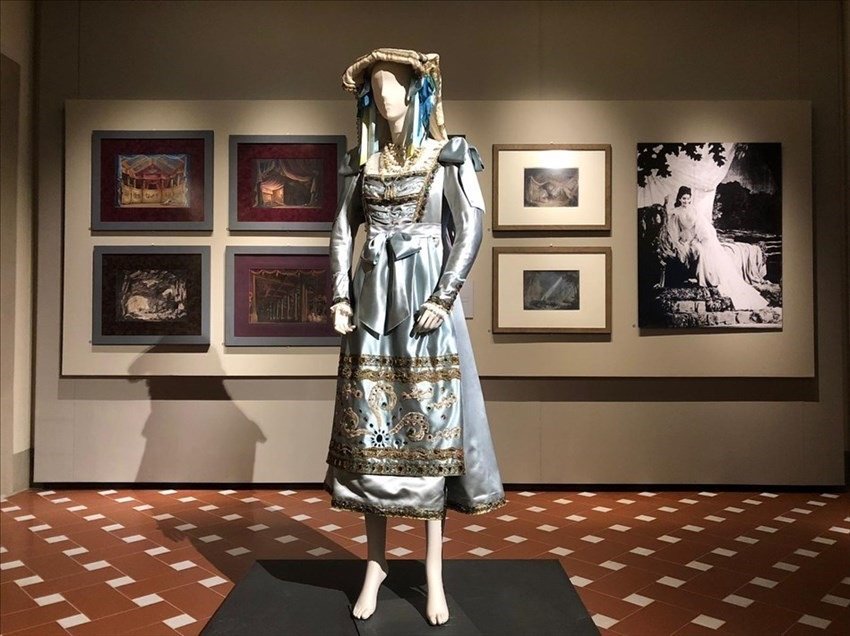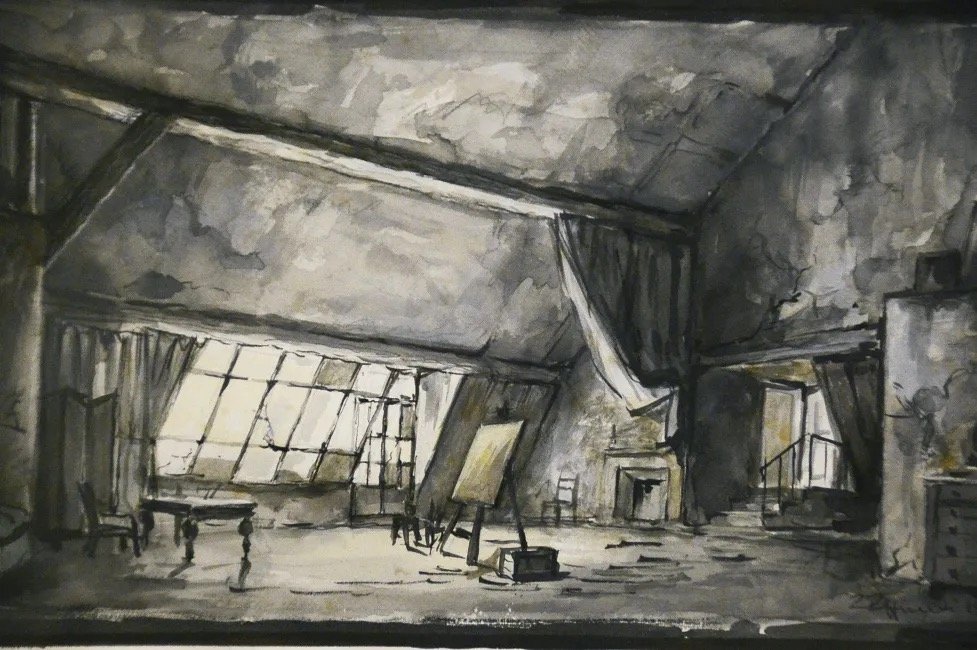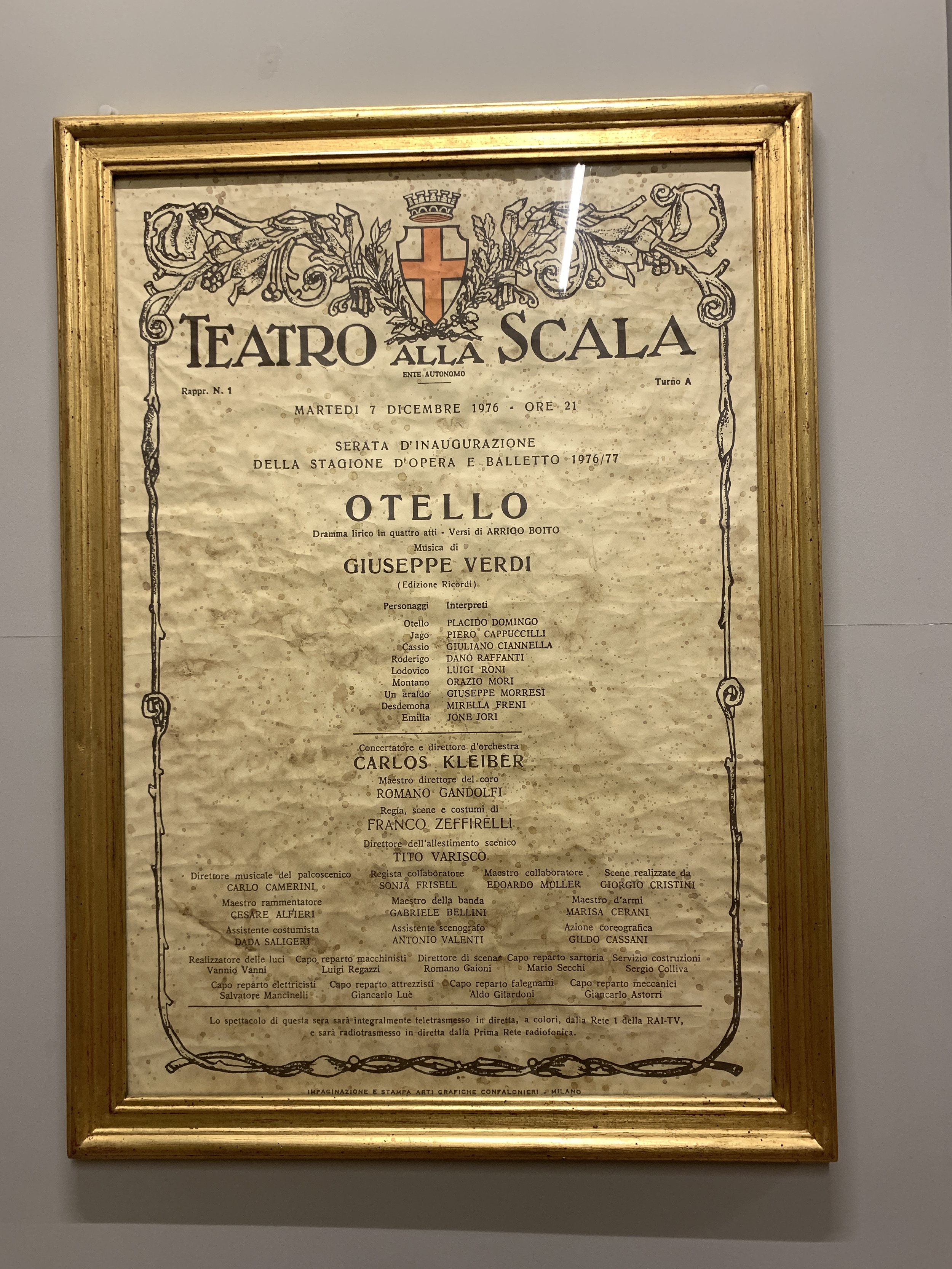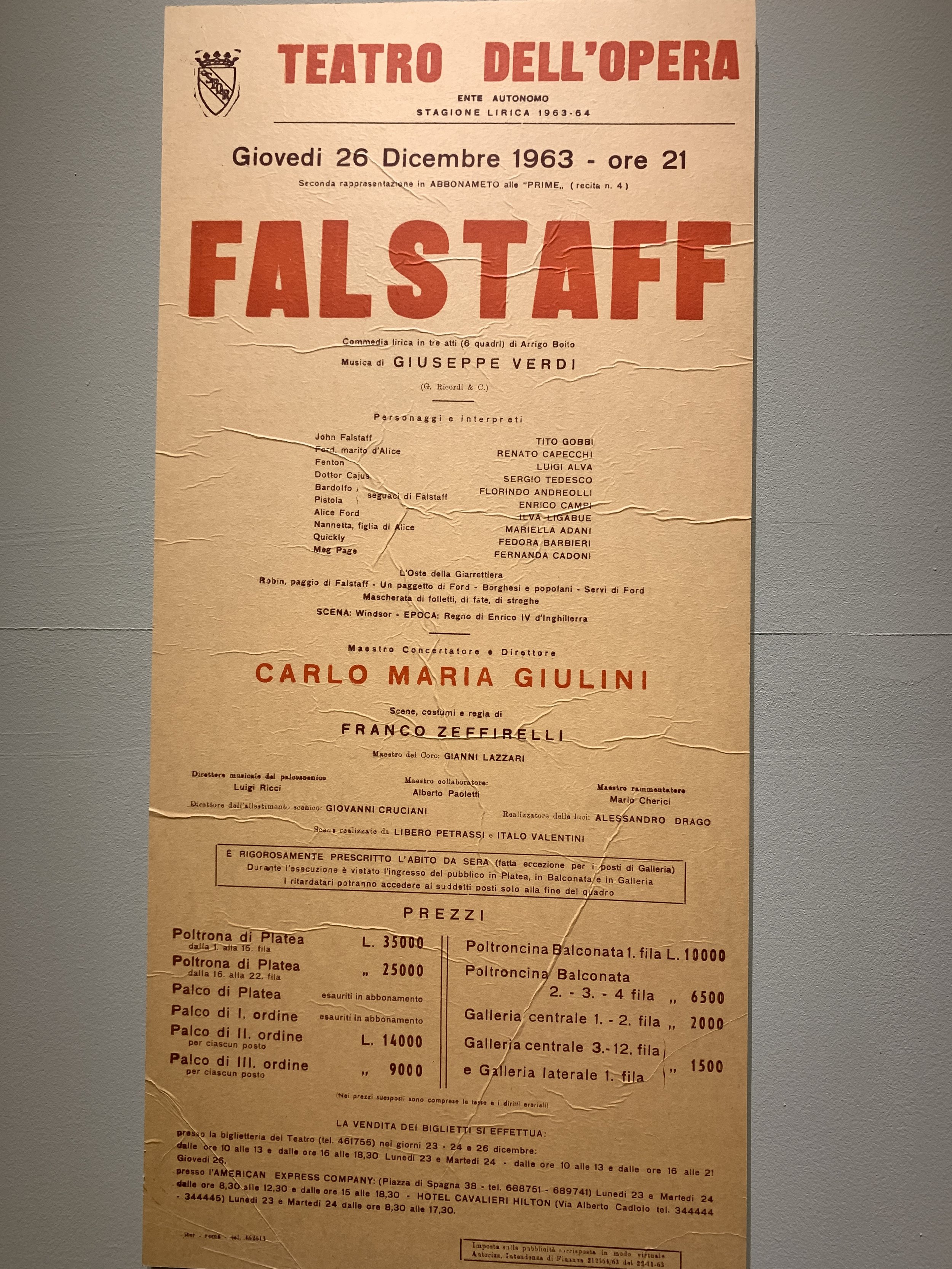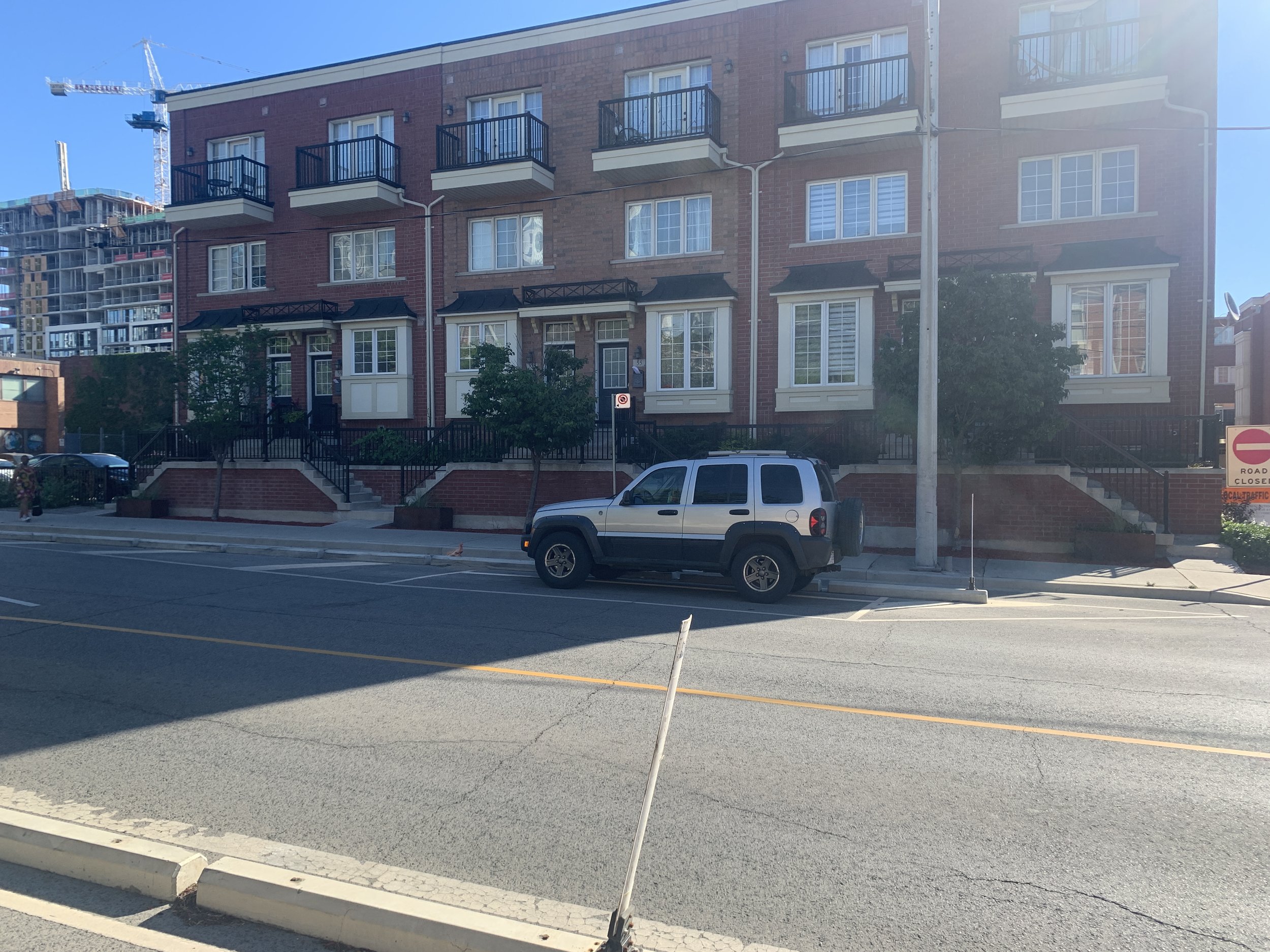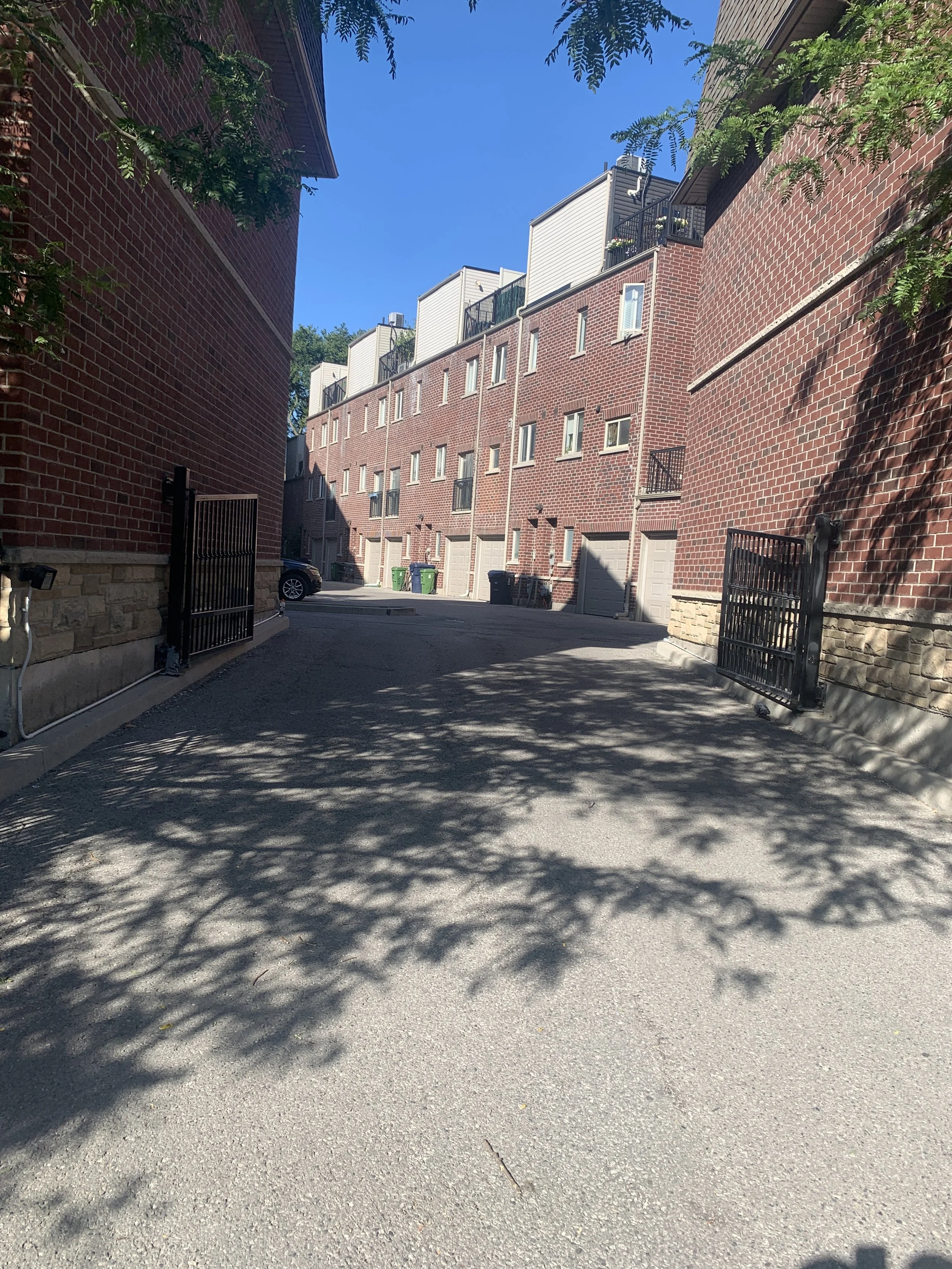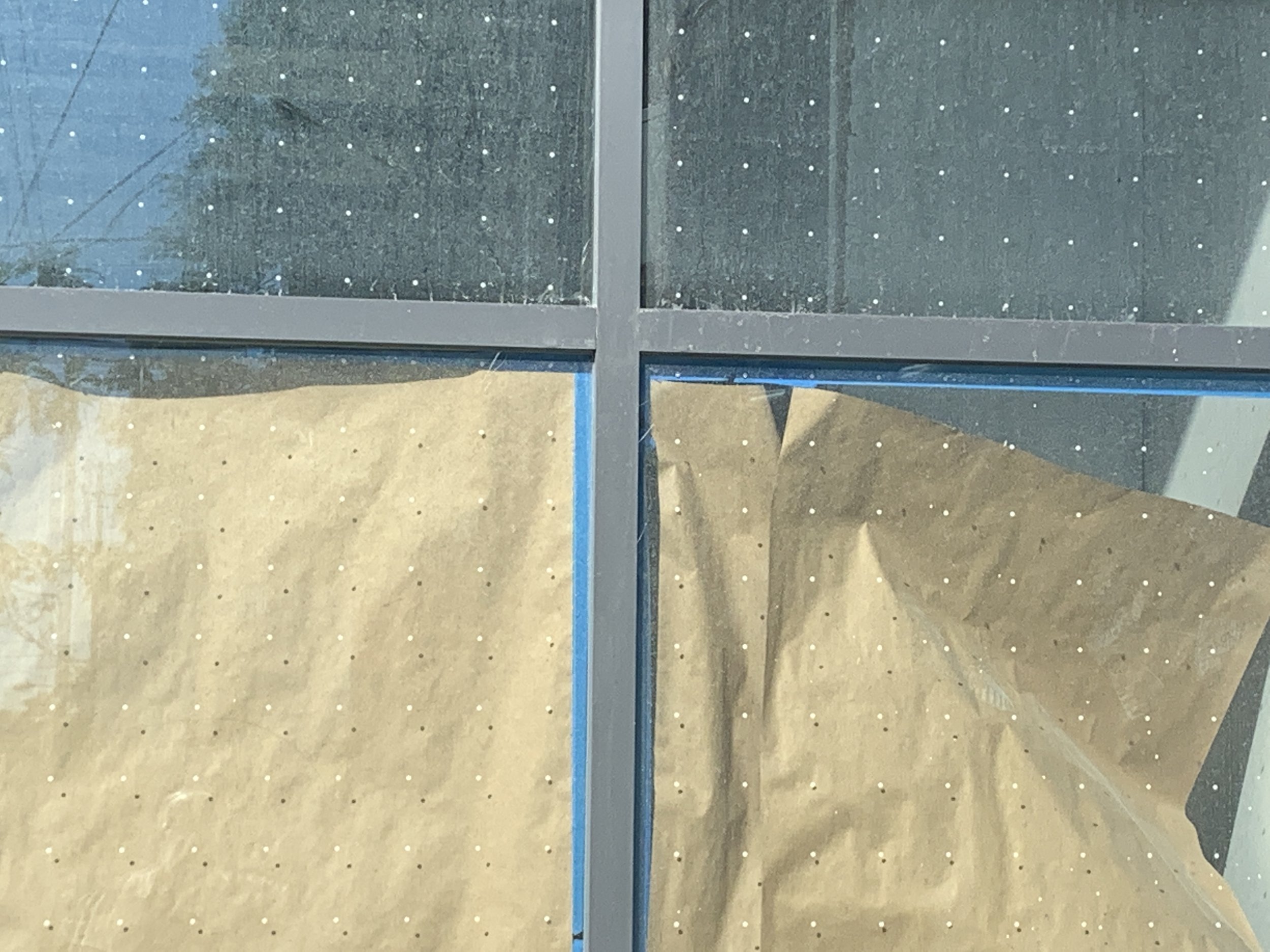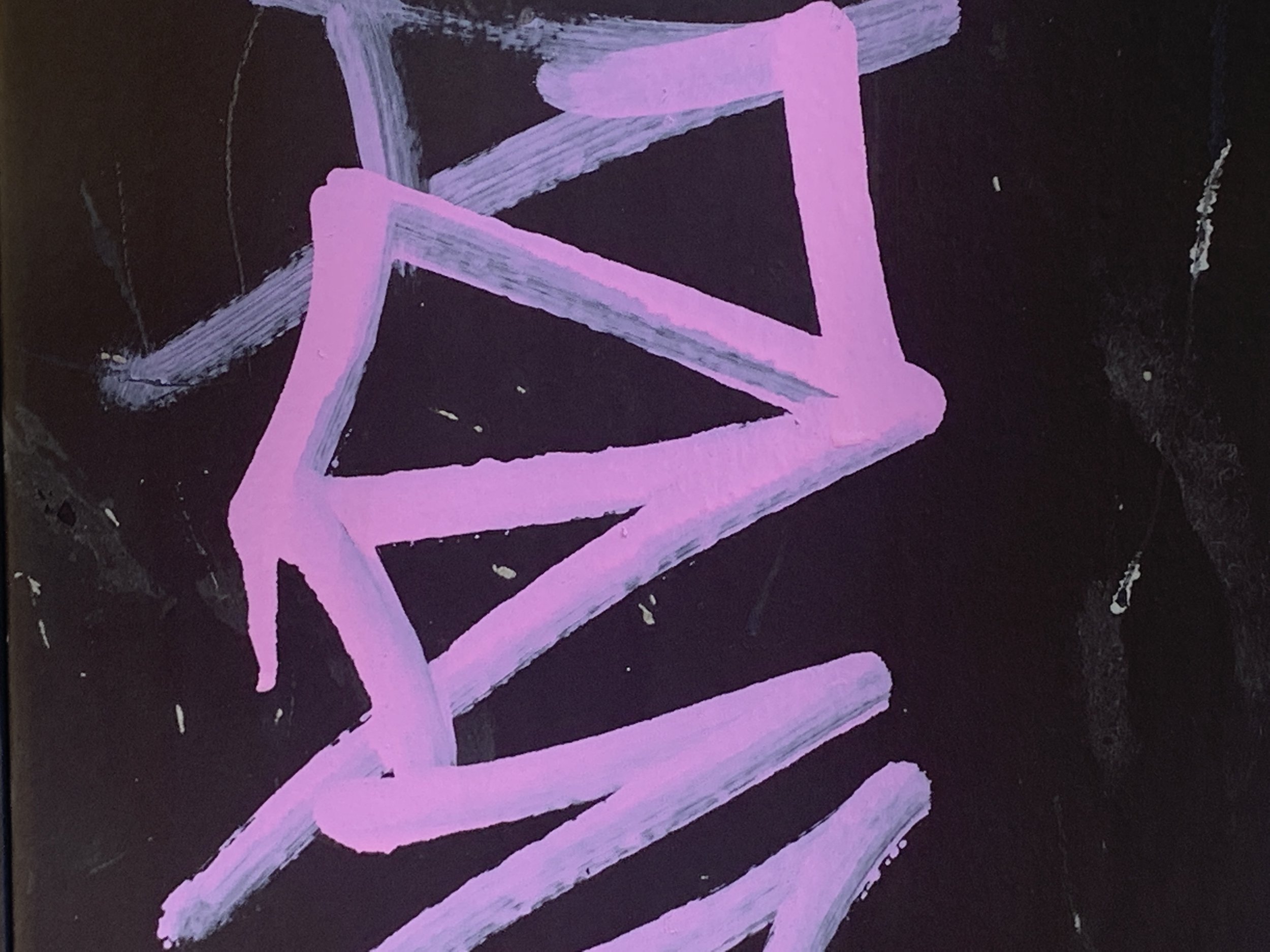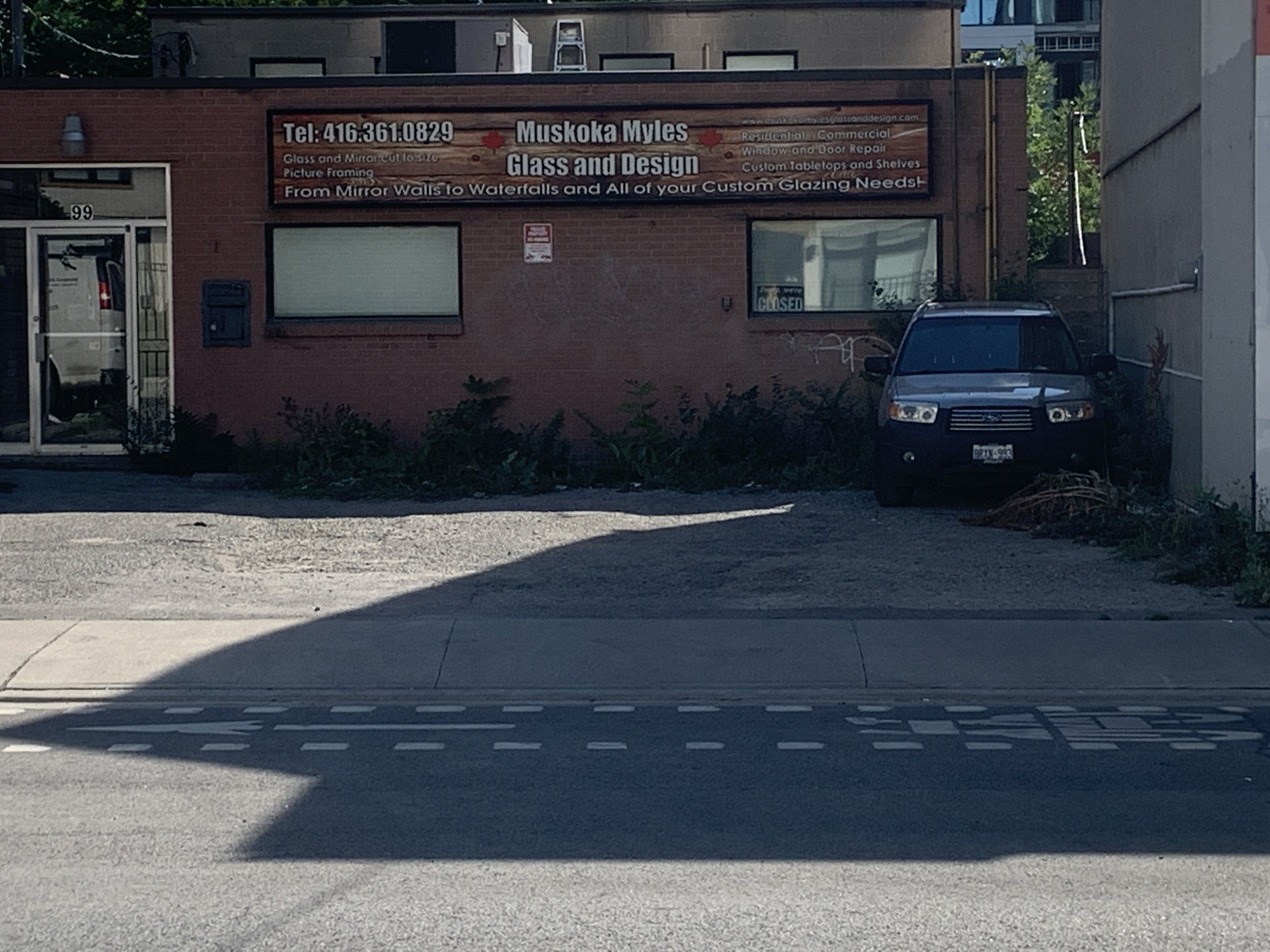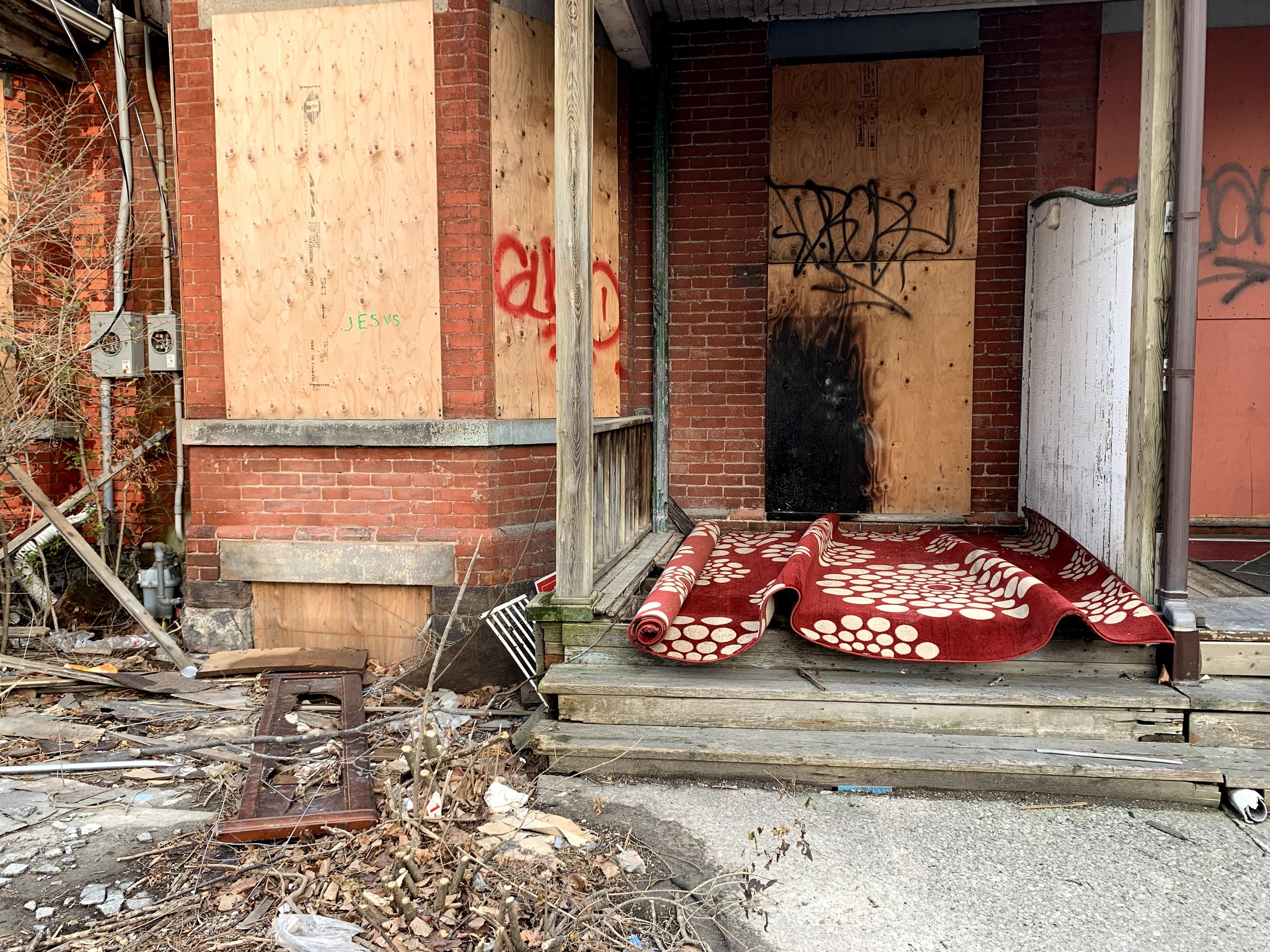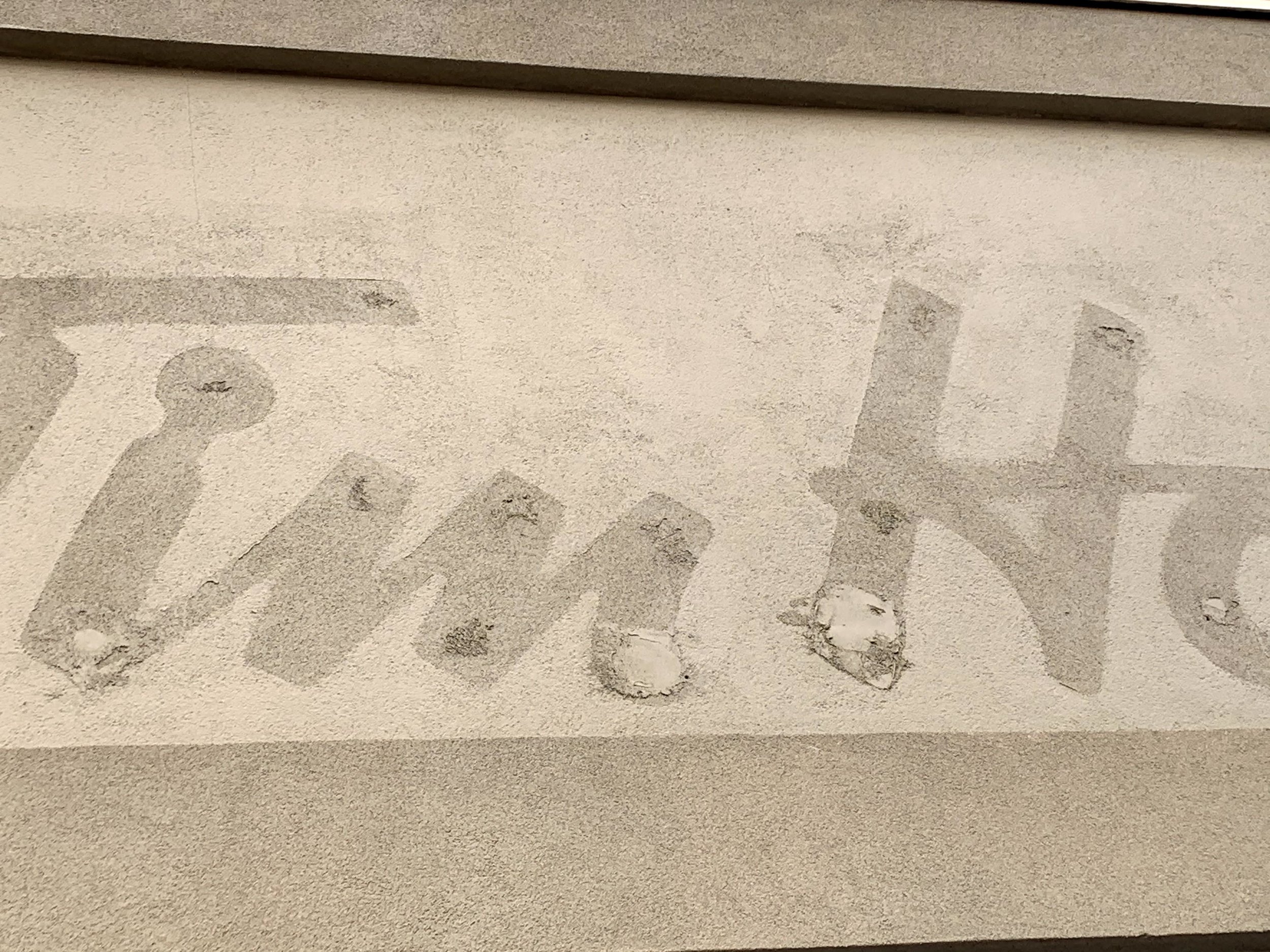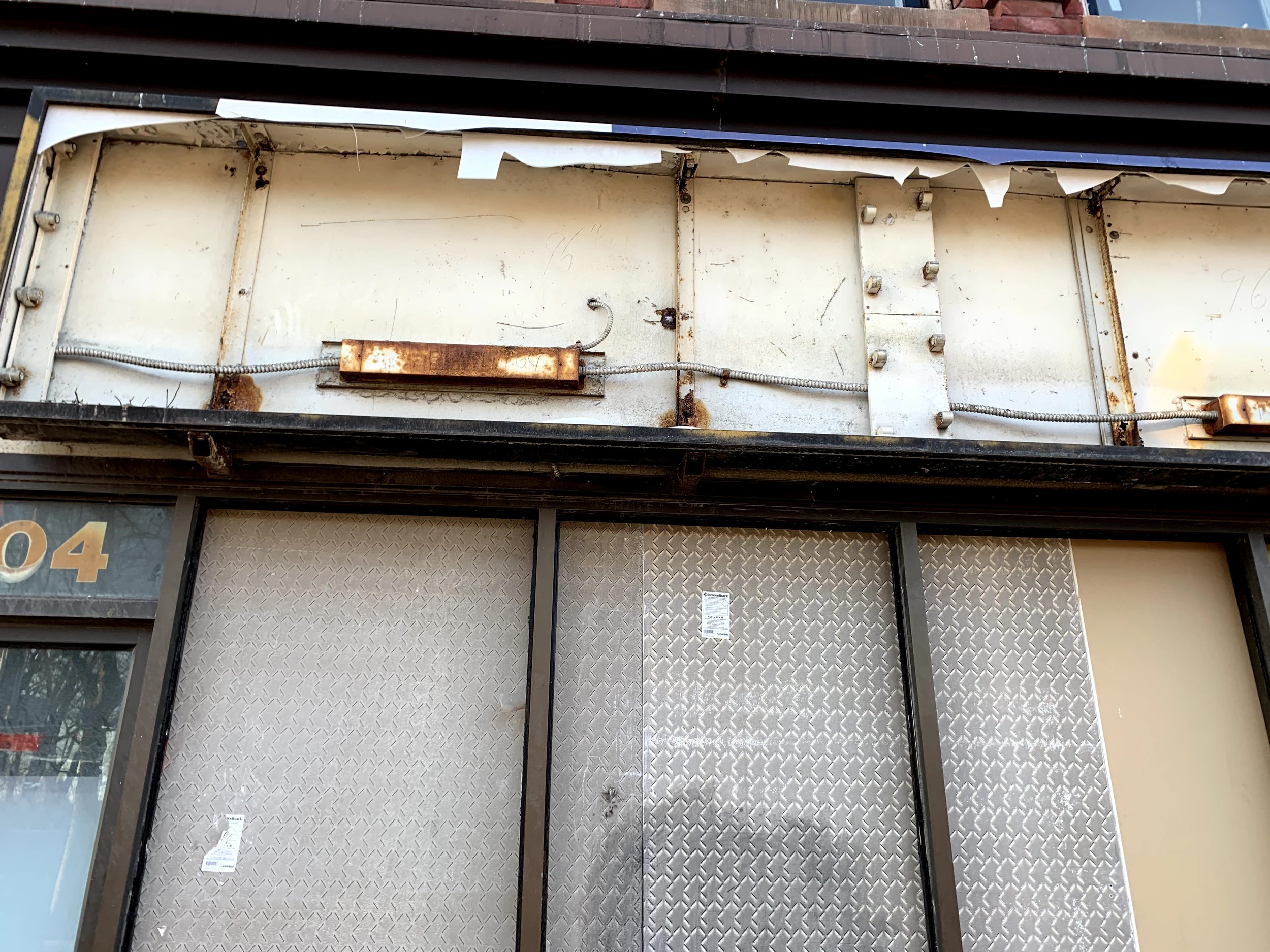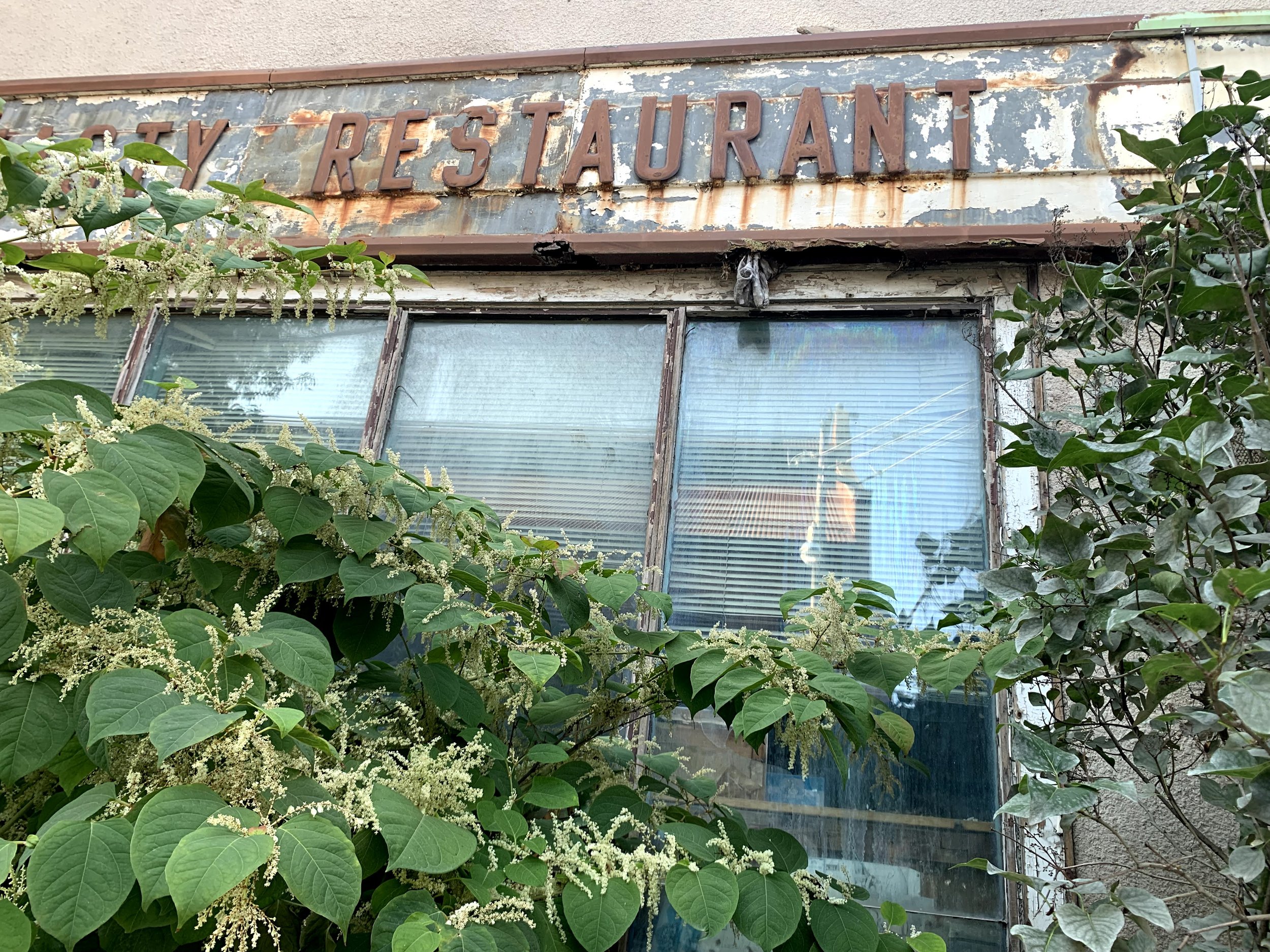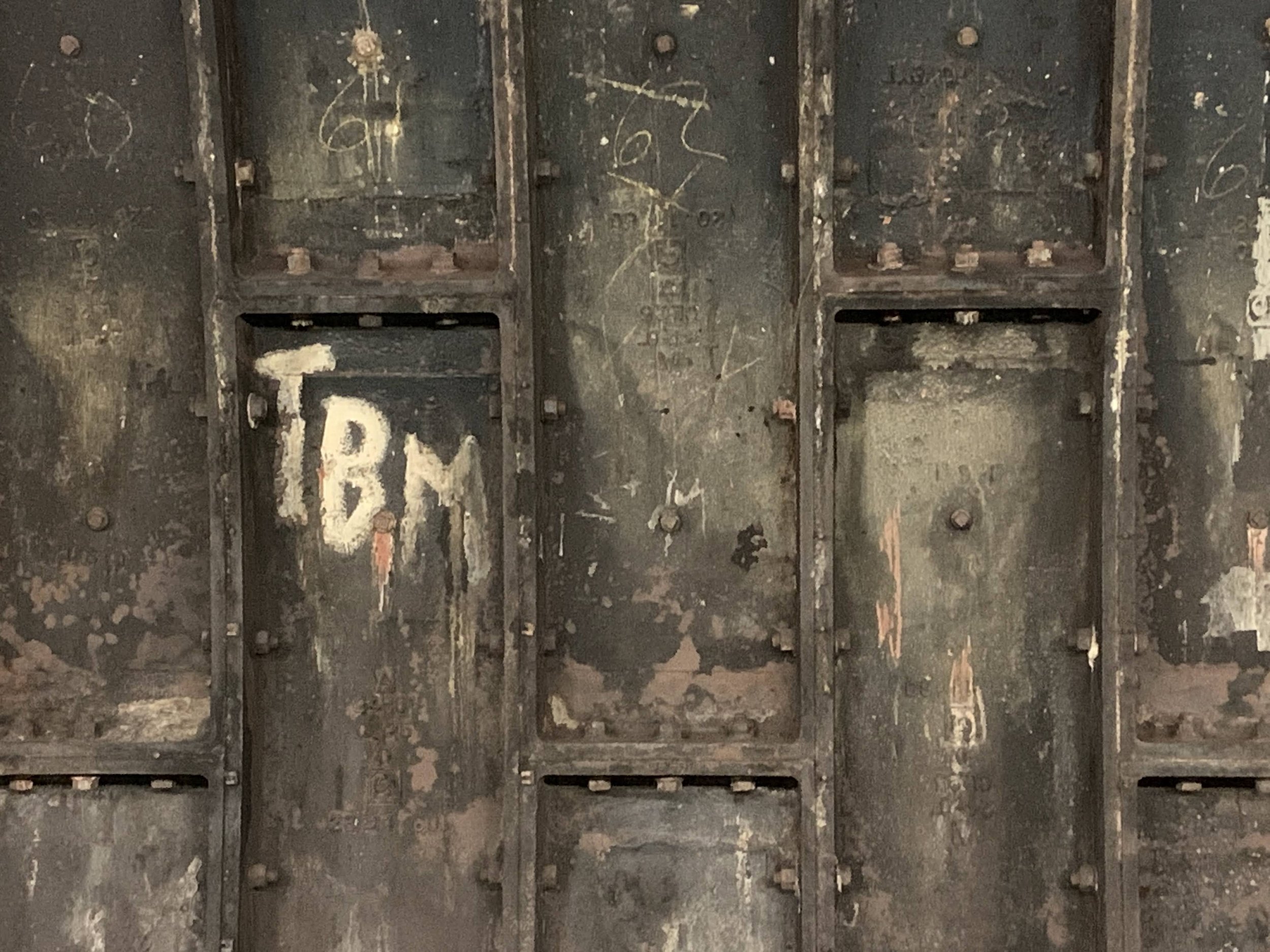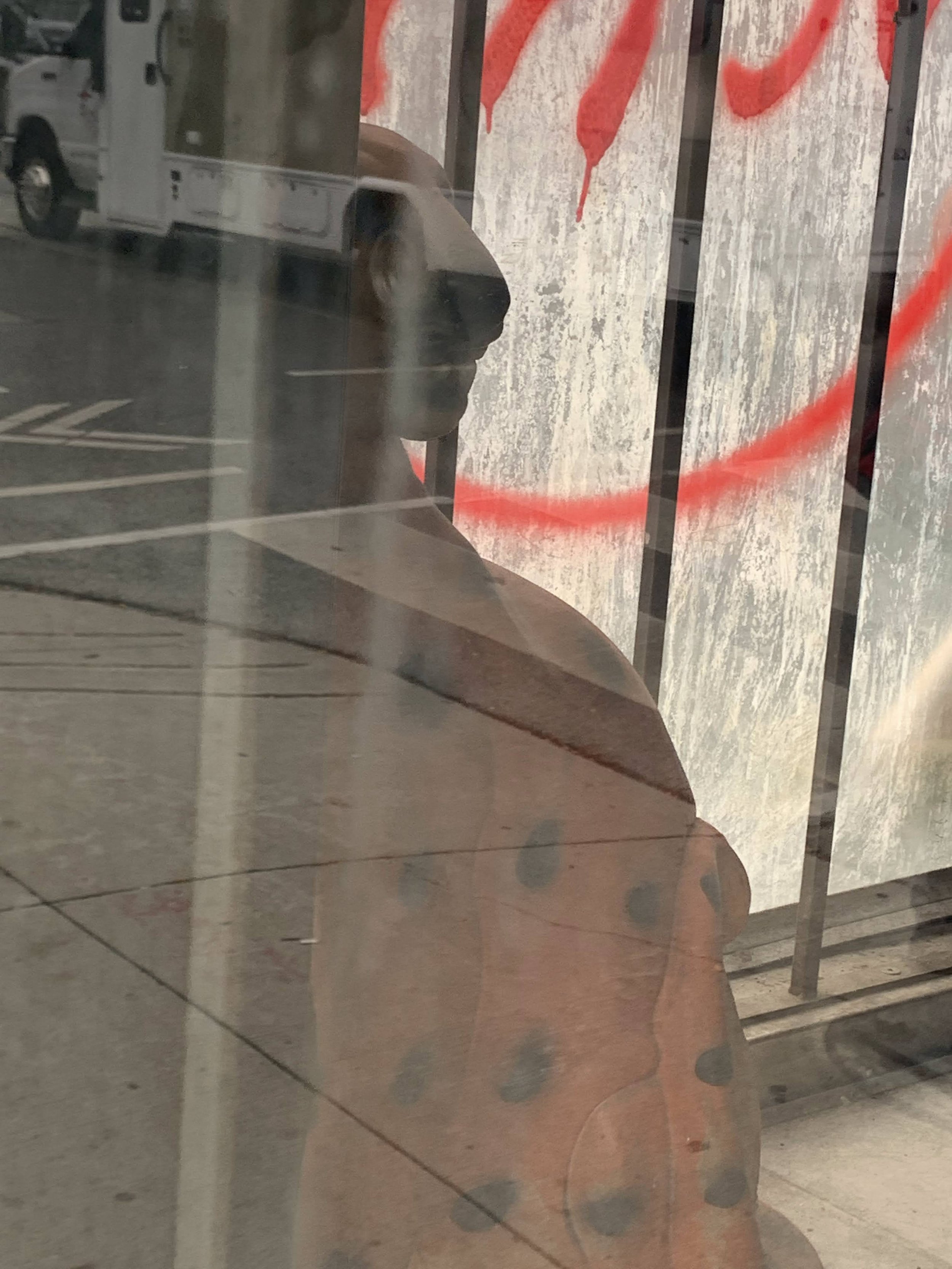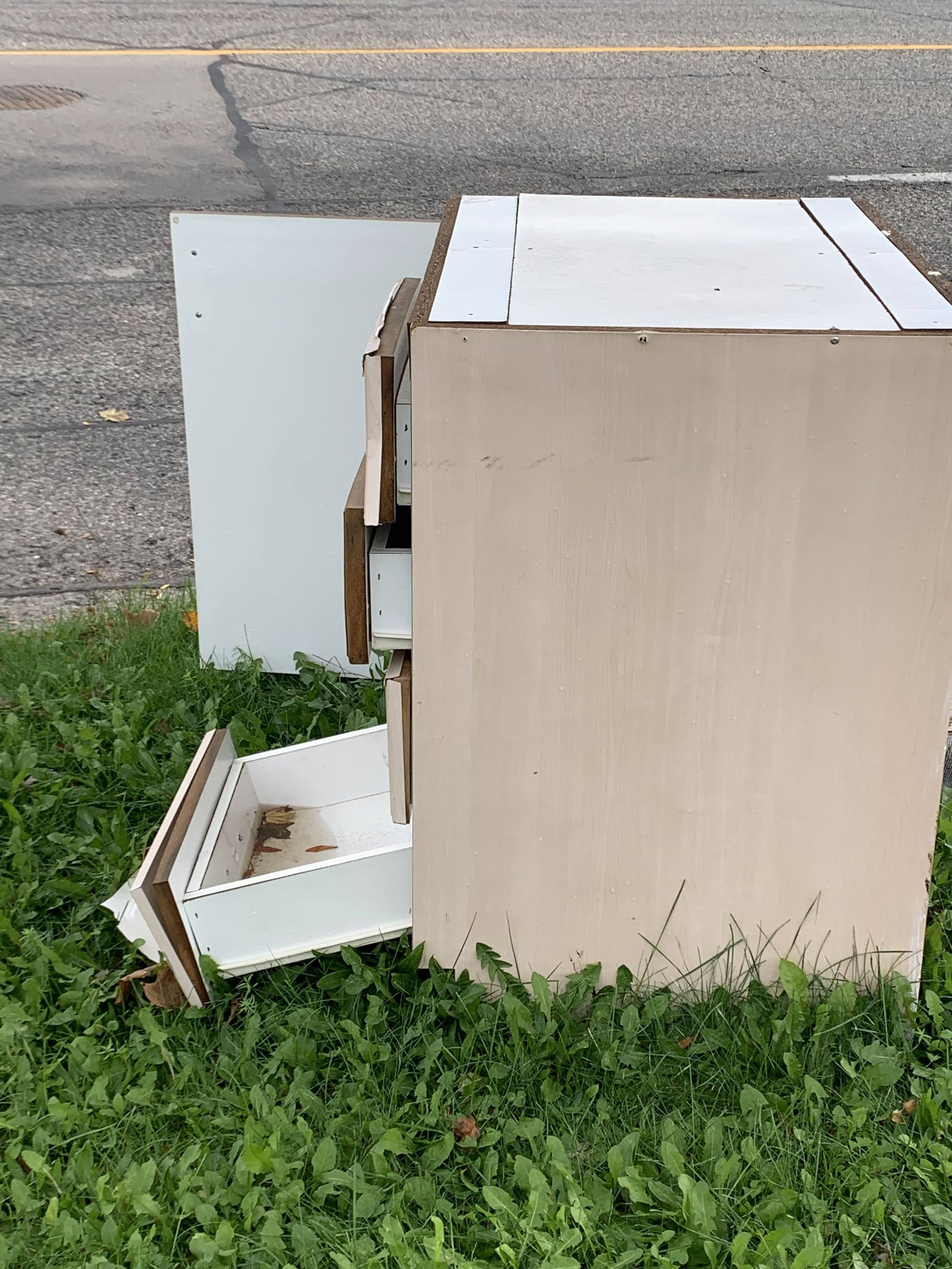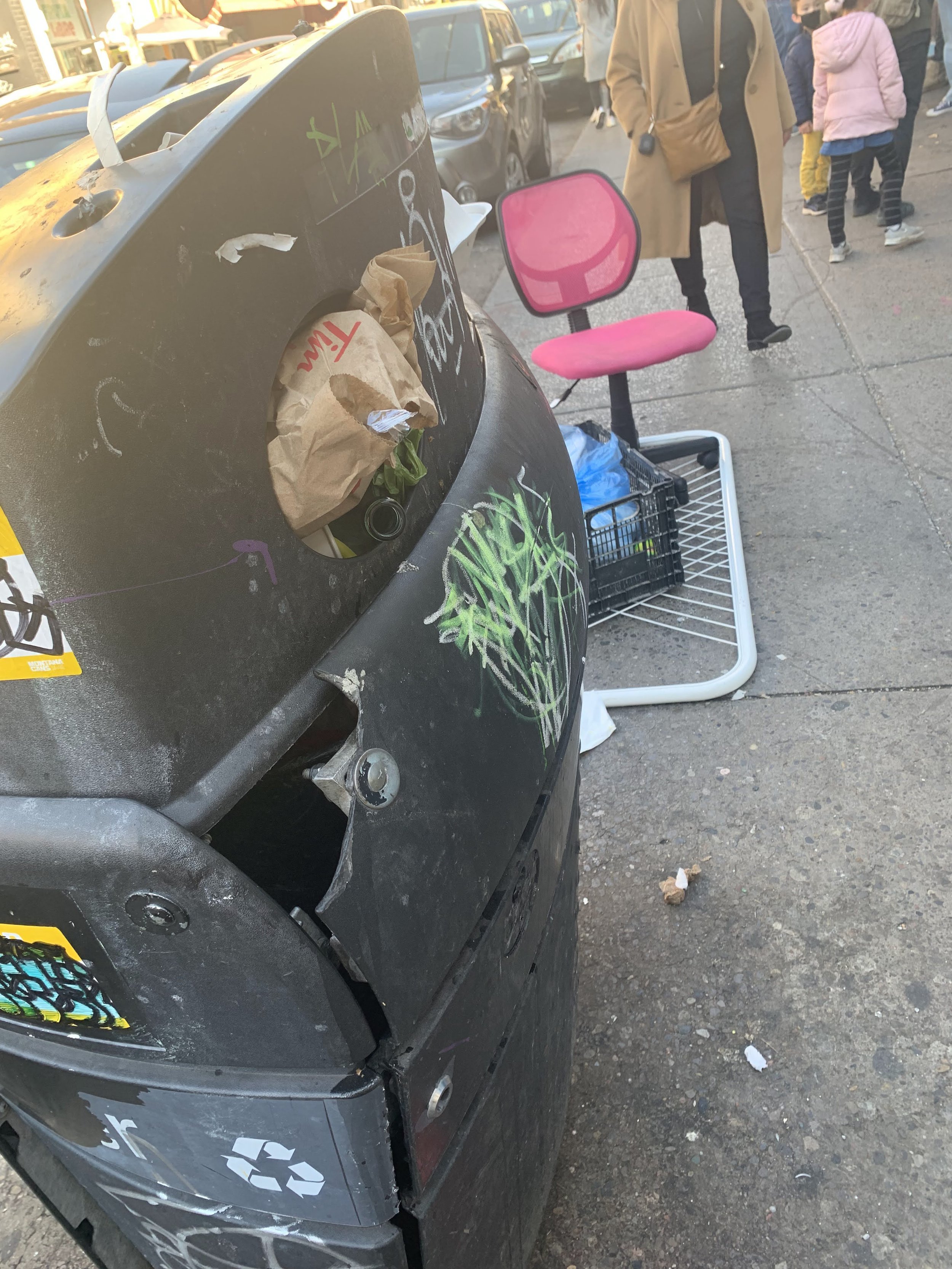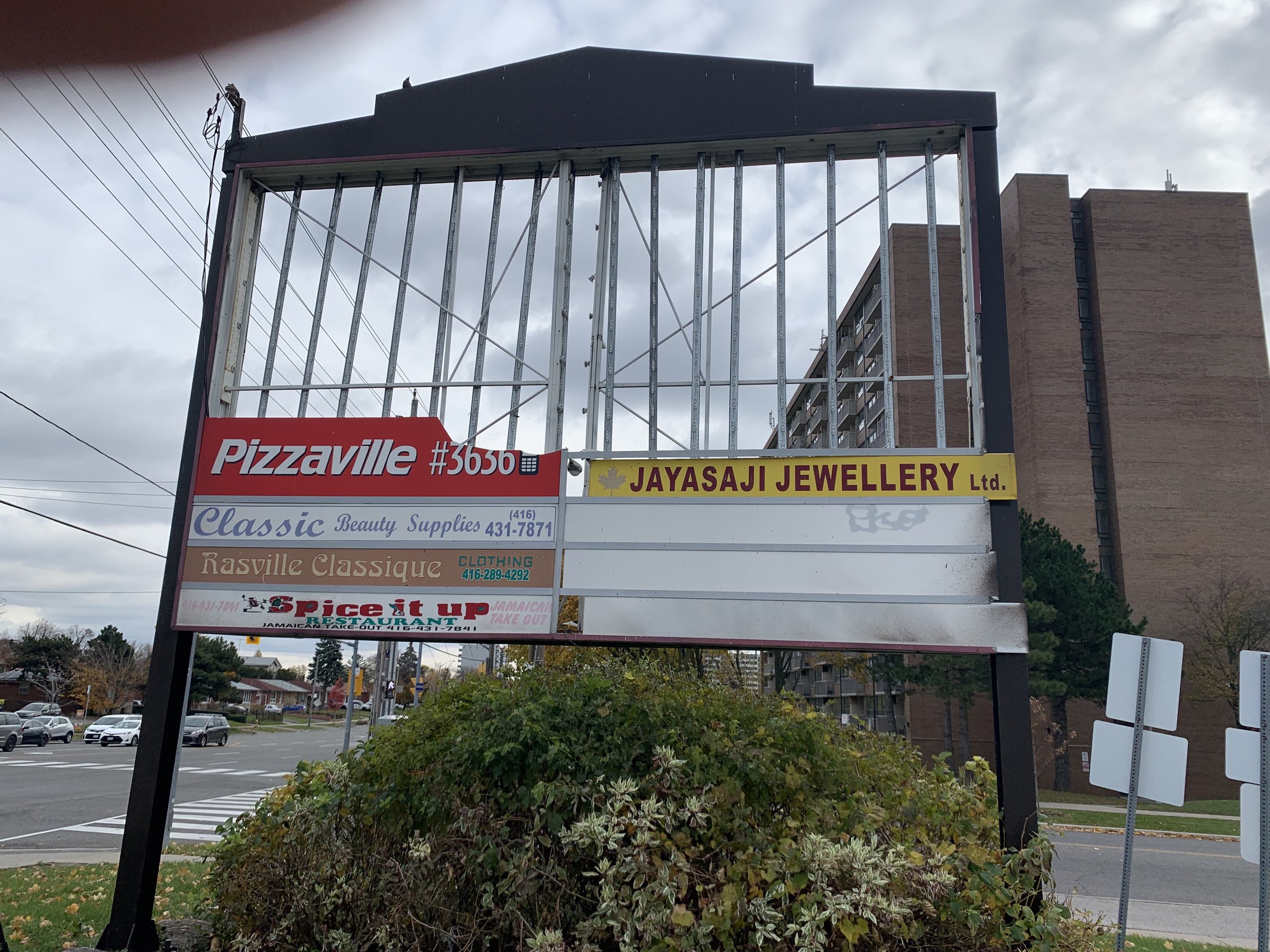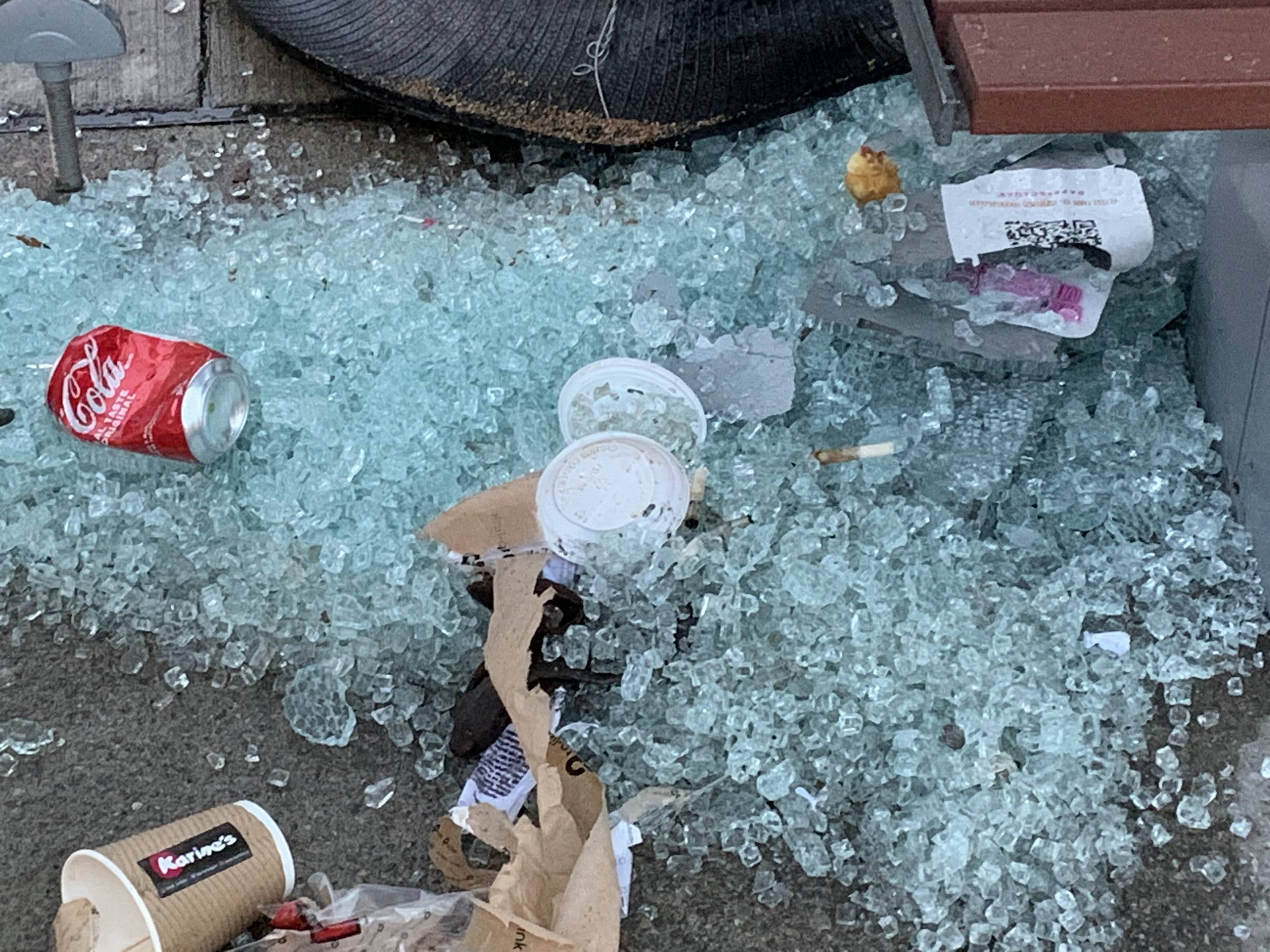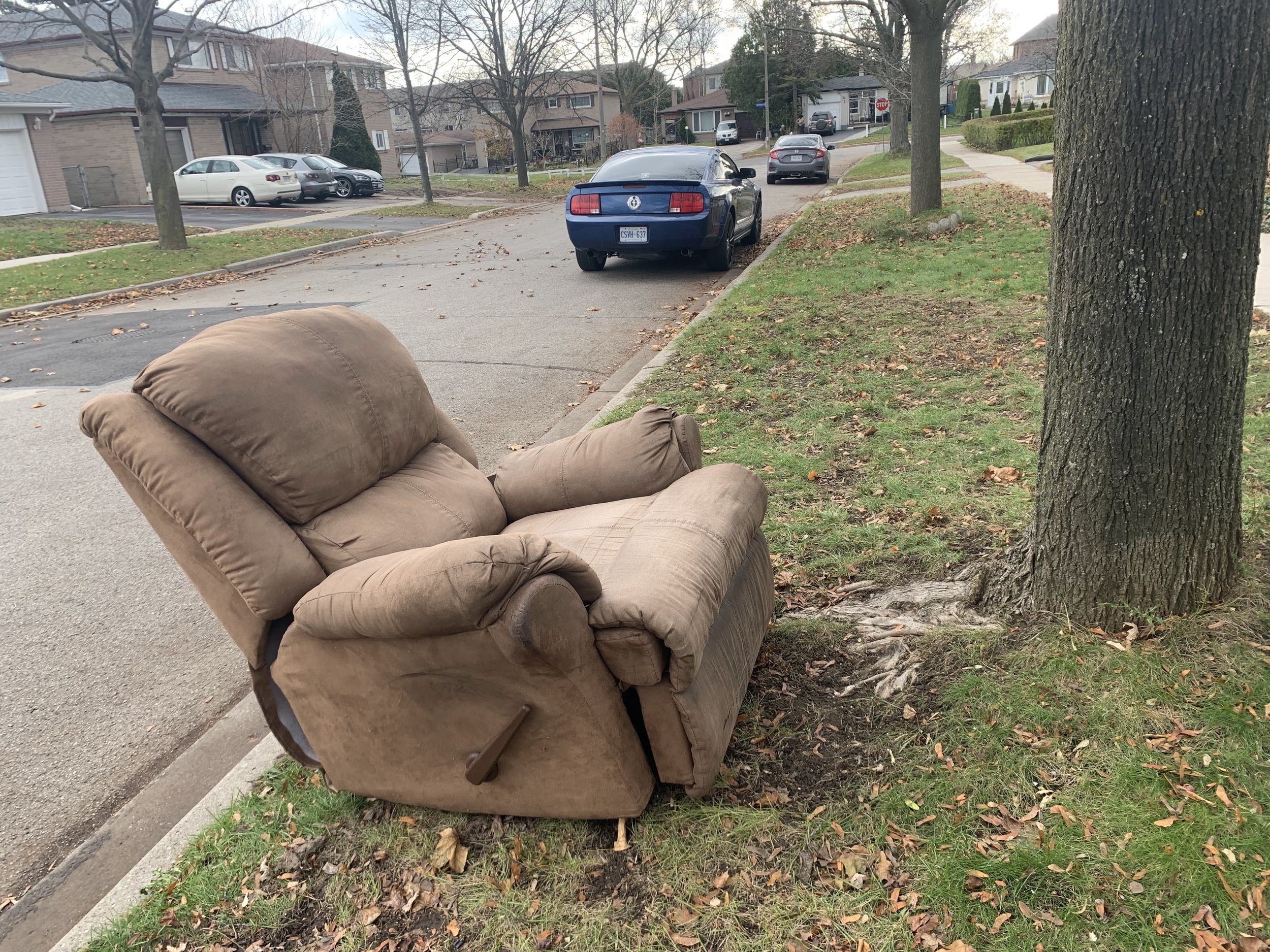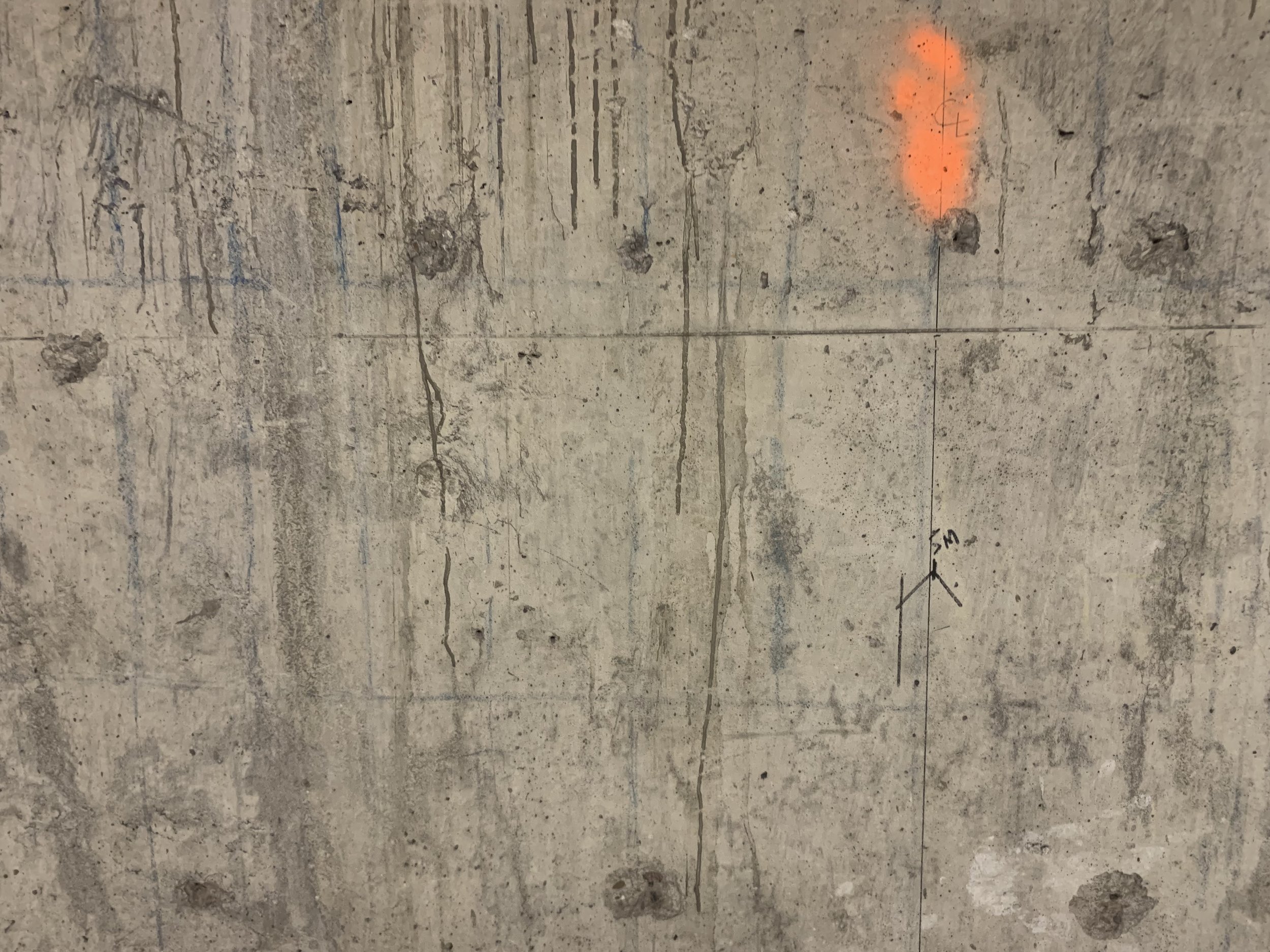#106: Kenneth Anger's Magick Lantern Cycle
R.I.P. Kenneth Anger, the third (or is it more?) filmmaking giant who shaped me immeasurably, and who passed away this this year. Anger left us on May 11, but I am just hearing about his death today. Before I had ever seen his films, or any experimental films, I was under Anger’s spell because of a transcript of a talk he did at the Funnel that was published in the first issue of a Toronto fanzine called Hide. I instal recognized that this subculture was for me. That was 1981 and I was still in high school. Four years later I helped revive a dormant student film society at Innis College, and turned it into an experimental/independent film exhibitor, publisher and forum. The first screening was Kenneth Anger’s Magick Lantern Cycle (letraset poster exhibited here!). Over the next ten years we would show all or part of it many times. Kate MacKay, Bart Testa and I met him at the Ann Arbor 8 fest in 1989, and in 1992 we brought him to Toronto, in collaboration with the AGO (I was wearing two hats then, one paid, and one purely love), as well as Public snd Pleasure Dome. We showed the whole Cycle at the original CineCycle (Spadina and Baldwin) twice, two very intense nights. We took him to Casa Loma and to John’s Italian Cafe. The AGO owns a 16mm print of Scorpio Rising, which is one of my favourite films - top 10 for sure. When I came back to the AGO and collaborated with Sophie Hackett on the Outsiders exhibition, we decided to open the show with Scorpio Rising, which confused some and delighted others. A giant.
#109: Heaven's Gate
One of my favourite films from day one.
From Wikipedia:
The final cut of "Heaven's Gate" premiered at New York's Cinema 1 theater on November 19, 1980. The premiere was, by all accounts, a disaster. During the intermission, the audience was so subdued that director Michael Cimino was said to have asked why no one was drinking the champagne. He was reportedly told by his publicist, "Because they hate the movie, Michael."
The initial critical reception was almost universally negative. New York Times critic Vincent Canby panned the film, calling it "something quite rare in movies these days - an unqualified disaster," comparing it to "a forced four-hour walking tour of one's own living room." Canby went even further by stating that "[i]t fails so completely that you might suspect Mr. Cimino sold his soul to the devil to obtain the success of 'The Deer Hunter' (1978) and the Devil has just come around to collect."
After a sparsely attended one-week run, Cimino and United Artists quickly pulled the film from any further releases, completely postponing a full worldwide release.
On April 24, 1981, the film opened in 810 theatres in a "director's cut" two-hour-twenty-nine-minute (149 minute) version that Cimino had recut. Reviewing the shorter cut in the Chicago Sun-Times, Roger Ebert criticized the film's formal choices and its narrative inconsistencies and incredulities, concluding that the film was "[t]he most scandalous cinematic waste I have ever seen, and remember, I've seen 'Paint Your Wagon' (1969)." Kevin Thomas of the Los Angeles Times issued a dissenting opinion when he reviewed the shortened film, becoming one of its few American champions and calling it "a true screen epic" while stating that in two decades as a critic, he had never felt "so totally alone."
The film grossed $1.3 million in its opening weekend and closed after the second week, having grossed only $3.5 million against its $44 million budget.
In 1999, Time placed the film on a list of the 100 worst ideas of the 20th century.
Writing in The Guardian in 2008, Joe Queenan declared 'Heaven’s Gate' the worst film made up to that time. “This is a movie that destroyed the director's career,” he wrote. “This is a movie that lost so much money it literally drove a major American studio out of business. This is a movie about Harvard-educated gunslingers who face off against eastern European sodbusters in an epic struggle for the soul of America. This is a movie that stars Isabelle Huppert as a shotgun-toting cowgirl. This is a movie in which Jeff Bridges pukes while mounted on roller skates. This is a movie that has five minutes of uninterrupted fiddle-playing by a fiddler who is also mounted on roller skates. This is a movie that defies belief.”
In subsequent years, some critics have come to the film's defense, beginning with European critics who praised it after the film played at the Cannes Film Festival. Robin Wood was an early champion of 'Heaven's Gate' and its reassessment, calling it "one of the few authentically innovative Hollywood films ... It seems to me, in its original version, among the supreme achievements of the Hollywood cinema."
David Thomson calls the film "a wounded monster" and argues that it takes part in "a rich American tradition (Melville, James, Ives, Pollock, Parker) that seeks a mighty dispersal of what has gone before. In America, there are great innovations in art that suddenly create fields of apparent emptiness. They may seem like omissions or mistakes at first. Yet in time we come to see them as meant for our exploration."
Martin Scorsese has said that the film has many overlooked virtues. Some of these critics have attempted to impugn the motives of the earliest reviewers. Robin Wood noted, in his initial review of the film, reviewers tended to pile on the film, attempting to "outdo [one an]other with sarcasm and contempt." Several members of the cast and crew have complained that the initial reviews of the film were tainted by its production history and that daily critics were reviewing it as a business story as much as a motion picture.
In April 2011, the staff of Time Out London selected "Heaven's Gate" as the 12th greatest Western of all time. While Peter Biskind covered the many excesses and problems with the movie in his book "Easy Riders, Raging Bulls", he also noted that Heaven's Gate was not dissimilar to other big-budget, troubled projects of the late 1970s and early 1980s (such as Steven Spielberg's '1941" (1979) and Warren Beatty's "Reds" (1981)), and that the backlash against "Heaven's Gate" could have easily been directed elsewhere. Biskind speculated that Cimino's personal unpopularity was the main reason this film became so widely reviled. (Wikipedia)
#108: Tavern of Song #9
Tavern of Song #9: I’m Coming Out
What if I told you that in this edition of Tavern of Song we will be celebrating an entire year since our first event? On June 4th, 2022, we gathered at the Dominion Pub and Kitchen and sang the songs that got “Under Our Skin.” One year later, on June 1st, 2023, we will gather again to celebrate Pride Month, with an evening entitled “I’m Coming Out.” This theme has LONG been in the works as Pride Month is near and dear to our hearts, (Meredith even slipped in a little bit of lgbtq+ content into our inaugural show so as to not let it go unnoticed: “Changing My Major” from Fun Home). Here at Tavern of Song, we believe music and the queer community go together like lesbians and Subarus, so we couldn’t be happier to kick off the month of June with this stellar lineup of queer performers:
Reg Vermue
Max Kenneally
David Ramsden
& Taylor Garwwod
Emcee: Meredith Shedden
When: Thursday June 26, 2023
Where: Boxcar Social (Harbourfront Centre)
Doors open at 7pm, which is a great time to grab a seat/table and order food and drinks
The performances will begin at 8pm, after which we will continue our discussion, and general music chit-chat
Admission is PWYC, and all profits are split between the performers. Cash is preferred, but e-transfers are also accepted
#107: STRESS (2000, Bruce Mau Design)
I produced this video for Bruce Mau (Design) at the turn of the century. Its first iteration was by an invitation only presentation at Downsview Park in 2000. It had its real debut later that year in Vienna at the MAK as part of Wiener Festwochen, who commissioned it. That presentation was an 8 screen, surround audio installation, with 26 objects or clusters of objects from an escalator to a car crash to a ton of batteries. It was then shown at the Gulbenkian in Lisbon just after 9/11. There we were only able to show it projected on a single screen: still 8 images but stitched together and shown on a very wide screen in a very wide theatre (thx to Maris Mezulis and the late Phil Strong). We actually realized that, after all the work we put into making it an immersive environment, it worked better the way we showed it in Lisbon. We reworked it a little and made a new soundtrack with David Wall, and showed it at the Power Plant in Toronto, along with two other moving-image pieces, Zone 6 (16mm loop) and Tokyo Countdown (video installation). We also showed it in Rotterdam and Tokyo (I think) but those screenings are lost to memory. So is the Power Plant one in a way (anyone out there who actually saw it?) And, in the scheme of things, it’s lost. I always thought that we maintained the digital elements such that it could be remounted or repurposed. When I left Bruce Mau Design back in 2010, though, I realized the files did not exist in any way that made sense to me. Over the years a few people who worked on it thought they might have the files. I’ll remain optimistic, but for now they don’t exist and the piece hasn’t been seen for over 20 years.
The piece was “translated”, however, into three derivative products. The first is as a very ambitious photo essay in a book called ReMembering the Body, a project led by Anita Matusevics, with contributions by Barr Gilmore, Robert Kennedy, Kyo Maclear, Maris Mezulis, Chris Bahry, and probably others. It’s a weird book. I won’t lie. But it’s beautiful and intelligent m, and it’s a pretty good document of the theoretical vibe of our commissioners, and perhaps of Andre Lepecki, a dramaturg and dance theorist with whom we collaborated on the project. It’s also a pretty good snapshot of our video installation. In fact, presented as a book, the coherence of the whole project is perhaps better captured. There’s also a fun supernerd typography move in it
Second, it was also the coda to our studio’s 624 page book about visual culture, Life Style. It’s one of the more enduring components of that wonderful bit of hubris.
Third, for some reason we made a single-channel composite of the project, perhaps for media and/or future venues. I have a VHS copy of it (remember, we are at the beginning of the DVD era, so VHS was still the norm for such purposes). I digitized it recently and, though it goes without saying that it’s not the same as the installation versions, it’s quite good. I think we (Robert? Maris? Both with Kyo and me?) did a good job figuring out which sections would be a single image, which would be double or multi-image, how text and titles would be integrated, etc. It’s Oswald’s soundtrack, so I think it was made around the time of the Wiener Festwochen. There is also in situ footage of the Downsview run-through shot by Maris Mezulis (on our shiny new Canon Elura?).
So imperfect and kind of fuzzy as this is. I’m happy to make it available here.
Thank you.
STRESS: AN INVENTORY OF EFFECTS
DIRECTED BY BRUCE MAU AND ANDRE LEPECKI
ASSISTANT DIRECTOR: KYO MACLEAR
WRITTEN BY BRUCE MAU, ANDRE LEPECKI AND KYO MACLEAR
PRODUCED BY JIM SHEDDEN
SOUND COMPOSITION AND DESIGN BY JOHN OSWALD (2000 version)/DAVID WALL (2001 version)
ADDITIONAL SOUND COMPOSITION, DESIGN, AND RIGGING BY PHIL STRONG
IMAGE RESEARCH BY KYO MACLEAR
TECHNICAL PRODUCER AND DIRECTOR, VIDEO DOCUMENTATION, MARIS MEZULIS
EDITED BY ROBERT KENNEDY
#105: Bell Let's Talk Posting in 2019
I’m an alcoholic/addict (same thing to me) with bi-polar disorder, which I still name the much more evocative manic-depression. I am in recovery in both cases and generally feeling sober, sane and sometimes even serene. Nonetheless, I’m aware that freedom from the manic-depression is contingent on a particular chemical balance that I can easily throw off not only by getting careless with my pharmaceutical regimen, but also if my sleep gets thrown off, if I get jet lag, or even if I consume too much caffeine. A bipolar relapse carries with it a huge risk of committing suicide so this can’t be taken lightly.
Similarly, but with a different twist, I’m aware that my recovery from addiction is precarious. As they say in the big book of Alcoholics Anonymous, “We are not cured of alcoholism. What we really have is a daily reprieve contingent on the maintenance of our spiritual condition.”
I take both of these conditions as forms of insanity. That’s a powerful word, but cuts to the chase, for me, better than illness, disease, sickness, or disorder. Those terms have their uses, but when you’re in the presence of a non-recovering addict or alcoholic, or someone experiencing manic-depressive symptoms, you will surely agree that they are, in that moment, insane.
If you agree that insanity is not being able to distinguish fantasy from reality, not being able to conduct our affairs due to psychosis, or being subject to uncontrollable impulsive behaviour, then alcoholism, drug addiction, compulsive gambling, and manic-depression are surely forms of insanity.
I say this to be helpful and, I hope, more precise than the culture of caring euphemisms sometimes allows. In 12-step recovery rooms, we are encouraged to be direct and honest, and open-minded to what others are sharing. This honest and open sharing, unfiltered by professionals, is, in my opinion, the primary reason those fellowships work (albeit “it works if you work it”, so for those who are in the recovery rooms passively observing but not getting engaged, the likelihood of success is much lower).
For conditions like bi-polar disorder, schizophrenia, OCD, etc. there is no real equivalent to 12-step fellowships, which is really unfortunate. On the other hand, I do think some of those conditions like bi-polar disorder, are almost purely neurochemical and can only be wrestled to the ground with lithium and other psychopharmaceuticals.
I should be clear, however, that I don’t see an absolute demarcation between sane and insane. I am free, today, but it seems never 100% of extreme manic-depression. I feel like I’m always on the verge of depression, but I never quite fall into it the black jaws completely. My medication makes me a bit poker-faced: calm even when calm isn’t called for, neutral, sometimes indifferent when I should have an opinion, never excited when most others are. I’ll take that over the completely unmanageability of hypomania or full-on manic episodes (which is when I’m most at risk for suicide. I’ll take that over the darkest depressions. But I’m always aware that I’m not completely OK.
Similarly, I can’t have a drink. I can’t smoke a joint (some alcoholics say they can, but I know that I personally cannot). I can’t mess with drugs at all, because I know the minute I do, the silicone chip inside my head will get switched to overload. It might be fatal; at the very least, it will be catastrophic.
We’re all insane sometime. As Ray Bradbury put it: “Insanity is relative. It depends on who has who locked in what cage.” Addiction and manic-depression are just chronic forms of insanity that sometimes have acute flare-ups. But, based on the definition above, my mother was insane as she was dying from dementia. A relative of mine is suffering a bit of insanity right now, owing to a medical condition. Another relative is suffering a form of depression that is causing him to be suicidal. In both cases, I hope, their conditions are temporary.
We all get a quick taste of insanity when we fall in love.
This passage from Hesse’s Steppenwolf is a powerful take on the false dichotomy between sane and insane: “The judge who sits over the murderer and looks into his face, and at one moment recognizes all the emotions and potentialities and possibilities of the murderer in his own soul and hears the murderer’s voice as his own, is at the next moment one and indivisible as the judge, and scuttles back into the shell of his cultivated self and does his duty and condemns the murderer to death. And if ever the suspicion of their manifold being dawns upon men of unusual powers and of unusually delicate perceptions, so that, as all genius must, they break through the illusion of the unity of the personality and perceive that the self is made up of a bundle of selves, they have only to say so and at once the majority puts them under lock and key, calls science to aid, establishes schizomania and protects humanity from the necessity of hearing the cry of truth from the lips of these unfortunate persons.”
The radical anarchist in me wants to adopt the stance of R.D. Laing, Michel Foucault, Erich Fromm and others who generally argue that “Many psychiatrists and psychologists refuse to entertain the idea that society as a whole may be lacking in sanity. They hold that the problem of mental health in a society is only that of the number of ‘unadjusted’ individuals, and not of a possible unadjustment of the culture itself.” (Fromm) I am convinced by this, on the one hand, but the forms of insanity I’m suffering from are going to kill me, and I can’t wait for society to fix itself: my body and soul are crying out, “help me now!”
I am very open about my so-called disorders. I share in private recovery meetings, I share publicly, I let practically everyone I know in on everything. I don’t want secrets. I don’t want shame. I don’t want to worry about my job prospects. I don’t want to worry about what people might think of me. I am what I am.
I hope that, by being open, others who might be suffering will feel free to ask me for help. I don’t have much to offer: just my story, my journey from insanity to sanity, addition to sobriety. But sometimes that’s enough. If not, I can connect them with someone else. Or maybe someone can just get something out of my story by listening, even if we never meet each other.
I am bothered by two recurring phenomena that plague addicts and other mentally ill individuals. I’m glad we’re tackling stigma here, but how are we ever going to influence more people to simply be willing? Be willing to listen to fellow sufferers, be willing to listen to medical and community professionals, be willing to listen to writers and artists who have written eloquently about our afflictions? Lack of willingness is killing us. It almost killed me: my alcoholism was so advanced and so destructive - to me, my family, my friends, my colleagues - but for the longest time I didn’t care. I wasn’t willing to get help. I wasn’t willing to end the madness. Eventually I did, but I was right on the edge. Many others never quite make it over to willingness.
The other phenomenon is related to willingness, and that is simply taking our medicine. I heard from a psychiatrist and a psychiatric nurse that getting patients to take their medication, and to continue taking their medication, is the number one problem in the field. I get it: I miss the expanded mental and emotional field I used to inhabit. I miss mania. I’d like to not be thirsty 100% of the time. I’d like to not have to pee 100% of the time. I’d like my metabolism to speed things up a little. I’d like other medications I take to not make me so grumpy and dysfunctional. But I persist, because I also like living in that sane middle zone. I like having as little drama in my life as possible (except on stage and screen). I like not feeling suicidal. I like not being delusional.
Complacency, amnesia, denial, laziness, defiance: I think these human characteristics explain why we stop taking our meds. Or stop going to recovery meetings (even when we know that they saved our lives).
I don’t know how to solve those problems. I guess all I can do is talk openly about them, and to continue talking about my journey.
“I'm standing on the edge of some crazy cliff. What I have to do, I have to catch everybody if they start to go over the cliff— I mean if they're running and they don't look where they're going I have to come out from somewhere and catch them. That's all I'd do all day. I'd just be the catcher in the rye and all. I know it's crazy, but that's the only thing I'd really like to be. I know it's crazy.”J. D. Salinger, The Catcher in the Rye.
#104: Leonard Cohen: Everybody Knows (Inside His Archive)
Very happy to announce that Leonard Cohen: Everybody Knows (Inside His Archive) is out, in time for the opening of the exhibition of the same name at the AGO. I think it's safe to that if you're a huge Leonard Cohen fan, you will want this book. I'm also happy to say that if you don't much about Leonard Cohen, this is a great introduction to his life, his work, his ideas, and his influence. I'm obviously happy with this book but that's mainly because I got to spend the better part of this year immersed in the writing, music, and his visual art of one of my favorite artists, in any field, and any genre. It was a huge pleasure to work with the Julian Cox, the AGO's chief curator who headed up the exhibition, and co-edited the book. Publishing coordinator Robyn Lew did a lot of heavy lifting, as usual, as did Kathryn Yuen early in the project. Alex Arslanyan was the resourceful and energetic research assistant for the exhibition, but also worked very closely with us on the publication. The book's designers, The Office of Gilbert Li (Gilbert, Sara Wong, and Alina Skyson for this book) did a masterful job presenting such a diverse array of artifacts and texts, and Nives Hajdin and Kendra Ward edited the texts with their usual sensitivity and patience, as did Judy Phillips with the proofreading. The printing is delightful, thanks to Type A's commitment to quality. Paul Jerinktish's pre-press work was impeccable. Clint Enns's visual research was enormously helpful. The Leonard Cohen Family Trust made the whole project possible: we benefited greatly from the knowledge and insights of Robert Kory, Robert de Young, Ran Kory, and Cheryl Cordingley. Essayists and other contributors from Alan Light to Michael Petit, Laura Cameron, and Joan Angel added depth to our broad sweep through the archive. Most of the images in the book were derived from the Leonard Cohen Family Trust, but we are also grateful for access to the University of Toronto Thomas Fisher Rare Book Library, Michael Petit, Ted East, Kristina Ljubanovic, the AGO's Edward P. Taylor Library and Archives, Sharon Robinson, Kara Blake, and George Fok.
#103: Tavern of Song #6
#102: Entirely predictable snapshot of my Spotify favourites
#87: Stan Brakhage and Jane Wodening Scrapbooks
#101: Fifteen Years of Sobriety
On October 23, 2007 I had my last drink. Today is the 15th anniversary of my sobriety.
Some alcoholics are made, and some are born. I believe I was probably born one. Looking back I was far too pleased with those first sips of wine and brandy at Christmas, and I was far too obsessed with when the next opportunity to drink would occur. Until I was in high school, it was almost always at Christmas and sometimes New Year’s. There was also a trip to Jamaica when I was ten years old when rum and cokes were easily had.
Did I mention my father is a recovering alcoholic? About a year before that trip to Jamaica where I remember getting sometimes buzzed and sometimes blotto, my father had his last drink. Well, almost, but that’s another story. There may be some value in dwelling on that further one day, but so far knowledge of that fact has played a relatively small role in my recovery.
For a while, because of the impressionability of kids, I decided to never drink. Not because of my dad, but my hero when I was 11, Randy Bachman, at the height of his fame and famously a teetotalling Mormon. I thought, what the hell? I had no reason to drink or drug.
It turns out I’m attracted to recklessness. When I was 13, I switched role models from the Mormon Bachman, to junkies like Jim Morrison and Lou Reed. I got curious about drugs, especially hallucinogens at first. I was interested in the consciousness-expanding qualities of drugs and alcohol, but I was even more attracted to the numbing, the self-confidence, that comfortable-in-my-skin feeling that alcohol and drugs gave me.
It quickly became imperative to be drunk whenever it was available and acceptable. I drank to feel normal in social situations, whether at parties, concerts, weddings, or even work.
My teen years were productive on the surface. I did very well in school, I worked part-time (and sometimes more). I played in various school bands. I made zines, wrote stuff, and became obsessed, in a good way, music, literature and cinema. And I even had a girlfriend for a chunk of that time.
I also drank and drugged alone, eventually adding various pills to my alcohol and hash diet. I got wasted in school, wasted at work, wasted at home, wasted on the town. I went to the drunk tank, and I got busted for selling drugs.
There were periods when it seems I was merely a heavy drinker, and this is where denial comes in. In my 20s, in my first real job, I had great opportunities but, looking back, I squandered many of them. I was often in a blackout, and am only now piecing together my life puzzle.
I found myself adjusting reality, not adjusting to it. I found myself lying instinctively, even about things that didn’t require the cover-up.
We often use Dr. Jekyll and Mr. Hyde to describe our condition. The alcohol goes in and we go from normal, civilised, professional, Dr. Jekyll and turn into the monster Mr. Hyde. But I was at my most monstrous, or at least as monstrous, when I didn’t have alcohol in my system. I don’t want to exaggerate that, but it’s rather simple: I drank because ! Iiked drunk Jim more than I liked sober Jim. Of course, drunk Jim was often a monster, or at best a blithering idiot, and then sober Jim had so much remorse for what drunk Jim said and did that he had to drink. You’d drink too if you drank as much as I drank.
It didn’t occur to me that I was an alcoholic, but by the time I was 20, I had no control over the amount that I drank, nor what was going to happen when I started to drink. I also found when I really wanted to stop I couldn’t. I found myself living more and more a parallel life, where I drank alone, in hiding, or in bars where nobody knows your name, and then trying to behave normally when I was with friends, family and colleagues
I was powerless over alcohol and I continued to rediscover my powerlessness until I was 44, so 30 years of drinking, and 24 years of flirting with stopping. For 24 years, a part of me knew that I had to quit drinking if I was going to survive, but drinking continued to be compelling.
In the “doctor’s opinion” chapter in the big book of Alcoholics Anonymous it describes my situation perfectly:
“The sensation is so elusive that, while they admit it is injurious, they cannot after a time differentiate the true from the false. To them, their alcoholic life seems the only normal one. They are restless, irritable and discontented, unless they can again experience the sense of ease and comfort which comes at once by taking a few drinks—drinks which they see others taking with impunity. After they have succumbed to the desire again, as so many do, and the phenomenon of craving develops, they pass through the well-known stages of a spree, emerging remorseful, with a firm resolution not to drink again. This is repeated over and over, and unless this person can experience an entire psychic change there is very little hope of his recovery.”
In 2007 I was travelling a lot, mostly to NY, enough to warrant getting an apartment in Brooklyn. On the surface I was at a career high, and had a great family and community life. In reality, I was going through periods of intense heavy drinking, much “not drinking” which involved hiding alcohol everywhere, and filling empty cans of fake beer first with real beer, and later with Jack Daniel’s, isolating in New York, blacking out in New York, blaming my depression, and believing that resentments were legitimate grounds for outrageous alcoholic and emotional binges.”
It was clear that I had problems other than alcohol. I didn’t fully comprehend them, but for a brief period I accepted the diagnosis of “anxiety and depression”, which sounded better than alcoholism or addiction. It bought me a few more months of my outrageously alcoholic “not drinking”, but the various cures and panaceas brought to the table by professionals didn't do much other than accelerate my real condition, manic-depression, a term I prefer to bipolar disorder, as it is more visceral, less clinicized. Depression was the obvious part of this equation. Mania just seemed like productive, energetic, maybe a bit obsessive. But I could go days without sleeping and it never bothered me. I was delusional, paranoid, irritable. I was suffering mood swings. I couldn’t think clearly. I was making hideous decisions, and I had no filter.
Throwing alcohol and drugs on the manic-depressive problem is a disaster, of course, but I had been doing it since I was a teenager it turns out. At the same time, I believe that misdiagnosing and failing to treat my manic depression was going to sabotage my efforts to get sober. After months of hospitalisation, detoxes, private counselling, more hiding and lying, acupuncture, Ativan, guilt, shame, remorse, a day-tox group (that was actually life-saving), I was fortunate to get concurrent treatment at Homewood in Guelph in the summer of 2007. I was taken off a handful of meds that were at odds with my recovery from both addiction and manic-depression, and put on a few others including lithium carbonate, which I have been on ever since. It is like finding “5” on my psychic settings: not too slow, and not too fast, and never varying more than maybe one notch. Of course, I occasionally romance the manic highs that I used to have, the energy and the extreme productivity, but only occasionally: that condition was going to kill me, and it was certainly not going to help me get clean and sober.
When it came to addiction, Homewood basically conceded that patients there were in a holding pattern, maybe getting a bit of education, recreation and 12 step orientation but ultimately their recovery was going to depend on long-term commitment to 12 step fellowship, service and recovery. Most would not make it. Most do not go to AA, NA, CA, etc. and most who do don’t stay. I only know what I know, but the odds of staying clean and sober without connecting in the recovery rooms, without identifying with other addicts, seems pretty slim.
I do know that the friends I’ve made in 12 step recovery rooms, and the opportunity to do service to help fellow sufferers, are the main reason I’m sober today.
There is just one brain, though it is complex. After beginning my dual disorder recovery, another problem that I can trace back to my teen years became impossible to ignore, impossible to just tame with massive amounts of booze. In this case, it was a neurological condition that causes involuntary movements and makes it impossible to sleep, to sit down or sit still. Untreated, it feels like it’s the biggest threat to my sobriety. It can feel like it’s sabotaging my manic-depressive equilibrium. I haven’t been tempted to drink because of it since I got sober, but it is how I used to treat it back in the day, before I even knew that it was a thing. I have very good care with a team of neurologists, but it has certainly been a treacherous journey. Like my manic-depression, I can’t afford to treat it as an “outside issue” (a term a small number of people in my program misunderstand, in my opinion).
So, fifteen years ago, after relapsing for several days, blacking out as usual, I dragged my tired body and soul to a recovery meeting. I went to another one that night. I kept going. Somehow, I kept going and didn’t drink again for fifteen years. One day at a time.
There is much good advice in the recovery literature and rooms. I have only been consistently diligent about two suggestions:
Don’t drink.
Go to meetings.
When I go to meetings, I meet other alcoholics and addicts. I discover that I can identify with them in ways that I will never be understood by people who are “normal”. Our stories are not normal: they are sometimes insane. Even when that’s the case, we tend to laugh at them where other people would be baffled and even horrified. But I identify at a primal level, even when the story is far from my experience on the surface. Deep down, I get the craziness. I get the rationalization, the minimization, the blaming, the self-pity, and the denial. It’s normal to me. It’s also neutralized in the rooms. As long as I stay sober, connect with other alcoholics in the rooms, and embark on a program of recovery in order to get out of self and be helpful to others, I don’t have to get drunk or high and accumulate more insane stories.
What is this higher power that you hear about in accounts of 12 step groups? I’m an atheist and though many people in the rooms are religious, I don’t find this to be an issue. That being said, I do understand that I had a higher power for many years, and it was alcohol: it was more powerful than anything else in my life. The theory is that, to get sober, I need to have faith in something larger than myself, and definitely larger than alcohol and drugs, something that will sustain me spiritually.
I don’t have anything that resembles a supernatural god in my life. Ultimately I don’t even believe in an underlying life force like energy, and if I did, I’m not sure that I would accord it the same power that I gave alcohol. On the other hand, in sobriety I have learned to have respect and gratitude for the multiple manifestations of powers that are greater than me: life, the universe, nature, consciousness, conscience, community, art, science, rebellion. These all humble me and inspire me in their various ways. AA (eventually I have to say the name) is the least abstract: I am sober, sane and even alive because of it. Rather than becoming my god-substitute, however, it has taught me to live without the gods of alcohol and drugs and, in so doing, all gods. That is not my interpretation of the program, but it is my lived experience. I’m not afraid of the term “spiritual”, however, even though I don’t have gods. Through getting sober in AA, I have had a spiritual transformation. There are many facets to it. Aside from having no interest in alcohol or drugs, the one I treasure the most is in the AA Promises, where it says, “We will intuitively know how to handle situations that used to baffle us.”
Thank you to my 12 step fellow travelers, and thank you to my family, friends, colleagues, and others who have helped me on this path.
Have a good day.
#100: San Francisco Cinematheque screening
#99: ad hoc screenings to date
AD HOC
1: Many Marie Menken Movies (April 28, 2017, PIX)
2: Reflections in Energy: Films by Jim Davis (June 23, 2017, PIX)
3: Beautiful Rage (August 10, 2017, Innis 222)
4: Countdown Canada (October 14, 2017, Innis 222)
5: Passiflora (November 10, 2017, Image Arts)
6: Who Says the Avant-Garde’s Not Funny? Unexpected Films (November 25, 2017, Innis 222)
7: John Straiton: Innovation and Animation (January 18, 2018, PIX)
8: Scaling the Insect (March 14, 2018)
9: Codes for North book launch (March 29, 2018, Innis 222)
10: Abstract Correspondences: Madi Piller’s Films Under the Stars (August 11, 2018, Madi’s house)
11: ??? We skipped a number it looks like
12: David Morris in person (September 20, 2018, PIX)
13: Potamkin (October 19, 2018, Innis 222)
14: Abraham Ravett in person with his films (November 6, 2018, PIX)
15: Mythology for the Soul book launch (November 16, 2018)
16: Oberhausen on Tour 2019 (February 13, 2019, PIX)
17: Richard Kerr in person with his films (March 31, 2019, Innis Town Hall)
18: Palace of Pleasure / Resurrection of the Body (June 28, 2019, Innis Town Hall)
19: I Drink (July 26, 2019, Innis Town Hall)
20: Lodestar: Phil Solomon, In Memoriam (October 6, 2019, Innis Town Hall)
21: Teo Hernández Films (October 16, 2019, PIX)
22: Devon Narine-Singh: The Recovery Cycle (October 26, 2019, PIX)
23: Barbara Sternberg - Prism or the scandal of death (November 10, 2019, 770 Don Mills?)
24: On the Move: The Moving Image Makers Collective (Scotland) (November 15, 2019, PIX)
25: Tectonic Plate (November 23, 2019, Innis Town Hall)
26: Work Bike & Eat: Films by Keith Lock & Jim Anderson (December 13, 2019, Innis Town Hall)
27: Women Filmmakers, Embodiment, and Abstraction (December 14, 2019, Innis Town Hall)
28: Rick Prelinger: Home Movies, Pointers to the Future (April 13, 2022, Innis 222)
#98: Franco zeffirelli
Franco Zeffirelli was never my favourite filmmaker. But it was clear, based on things I had heard and read, that he was a creative giant, and that his work in cinema was best understood in the larger context of his work in theatre and opera. So a visit to the Zeffirelli Museum (in the Zeffirelli Foundation building) in Florence was a highlight of our trip to Italy. The elasticity of Zeffirelli’s imagination, and the sheer volume of his creative output, is staggering. And my ignorance of most opera and theatre is staggering in its own way too.
#97: Toronto mike pays a visit
I wrote to Toronto Mike, and he paid a visit to the AGO. https://www.torontomike.com/2022/08/i-am-here-at-ago/
#96: The River (St.)
Saturday morning impressions of my neighbourhood.
#95 #derelicttoronto
Loving photographs of the derelict side of Toronto. #derelicttoronto on Instagram, and an old Facebook album.
#94 John Wayne
John Wayne died on this day,
June 11, 1979 (b. 1907). A problematic son of a bitch, I find it hard to ignore the fact that he stars in about ten films that I love (a few of them problematic sons of bitches themselves): Rio Bravo, El Dorado, Red River, The Searchers, The Man Who Shot Liberty Valance, Stagecoach, She Wore a Yellow Ribbon...
John Wayne (with Dean Martin) in Rio Bravo, one of my favourite films.
#93: INTERVIEW WITH DANIEL GARBER ON CIUT RE MOMENTS OF PERCEPTION
https://culturalmining.com/2022/02/26/daniel-garber-talks-with-jim-shedden-about-moments-of-perception-experimental-film-in-canada/
#92: Burt Bacharach, on the occasion of his 94th birthday
Happy 94rd birthday Burt Bacharach! I am sharing Kurt Swinghammer’s recollection of meeting him, and his exuberant (warranted!) appreciation of his genius. For me, there may be more Bacharach/David compositions that become “my favourite song of all time” when they are played. That would include This Guy’s in Love with You (Herb Alpert and the Tijuana Brass), Walk on By (Dionne Warwick, The Stranglers), The Man Who Shot Liberty Valance (Gene Pitney, John Otway), I Say A Little Prayer for You (Aretha Franklin), Baby It’s You (The Shirelles, The Beatles), Make it Easy on Yourself (The Walker Brothers), (They Long to Be) Close to You (The Carpenters), My Little Red Book (Manfred Mann, Love), What the World Needs Now is Love (Jackie de Shannon), There’s Always Something There to Remind Me (Sandie Shaw), Trains and Boats and Planes (Billy J. Kramer and the Dakotas, Do You Know the Way to San Jose? (Dionne Warwick), I’ll Never Fall in Live Again (Bobbie Gentry, Elvis Costello), Raindrops Keep Falling on My Head (B.J. Thomas), Promises, Promises (Dionne Warwick). Many, many moments of perfection.
Here’s Kurt Swinghammer’s text: Happy 94th birthday to my all-time favorite songwriter Burt Bacharach.
In 2001 I had an amazing chance to have drinks with him and my chums Michel Wojewoda and Blair Packham at a swanky joint in Yorkville, and I had come straight from a gig at the Cameron, so I had my axe with me.
He lit up when he saw his name and crowned face on the headstock and signed it “my best wishes to you always – next time”. NEXT TIME!!!!
When he left, I sat in his chair to transfer his body heat into mine, and I drank the remaining wine from his glass. The blood of Christ. It was the most thrilling night of my life, and when I got home, I cried. God bless Burt Bacharach.



